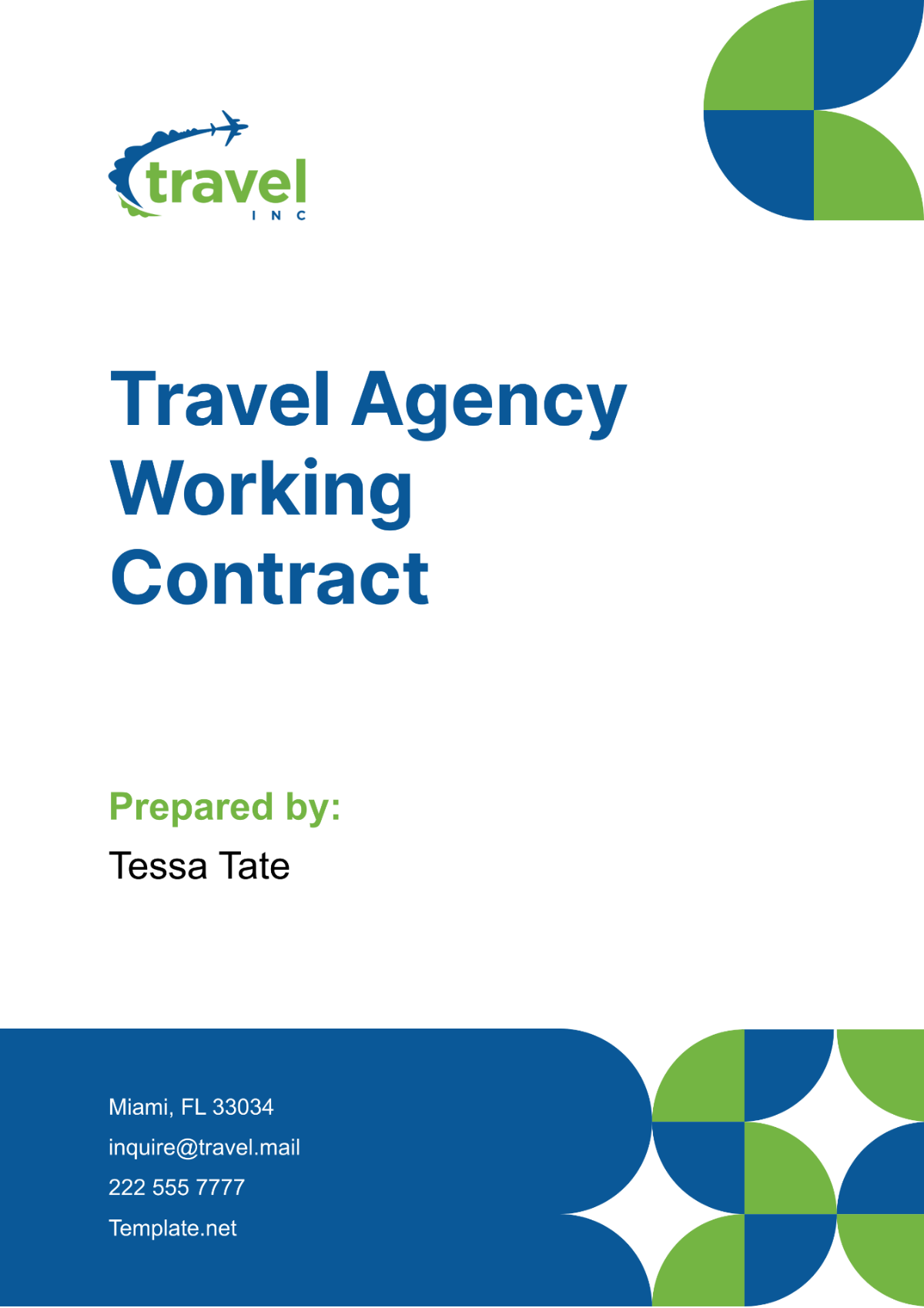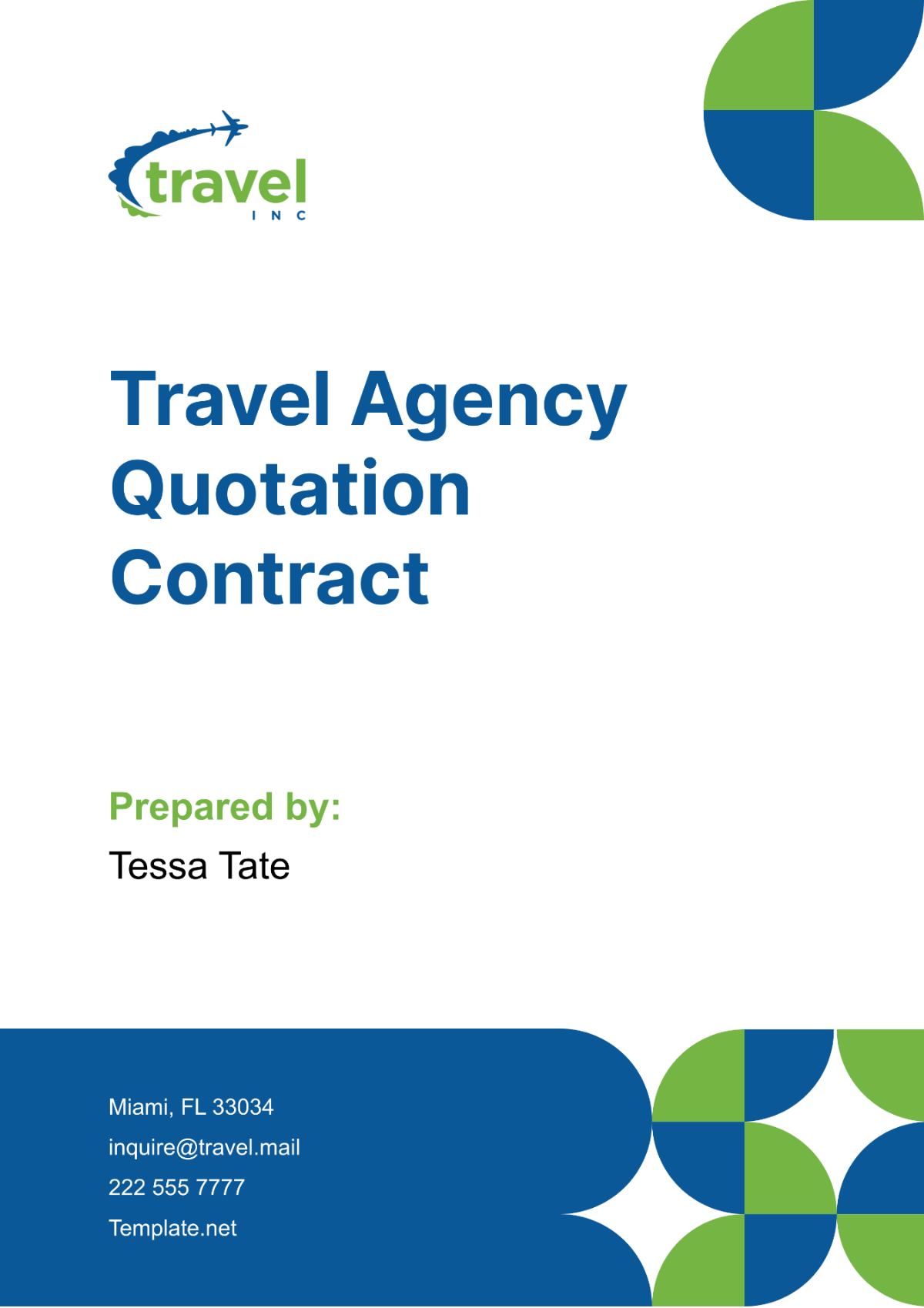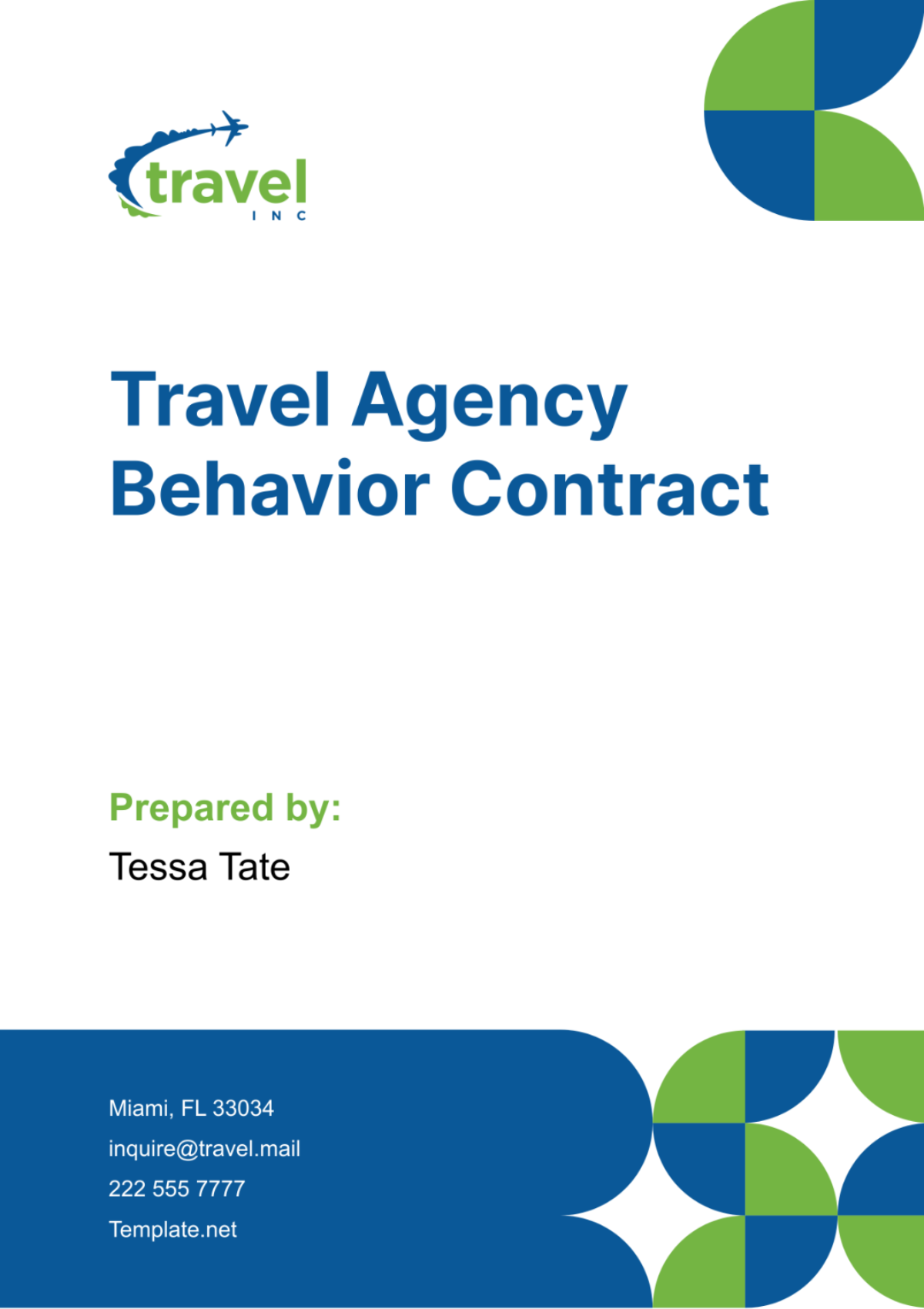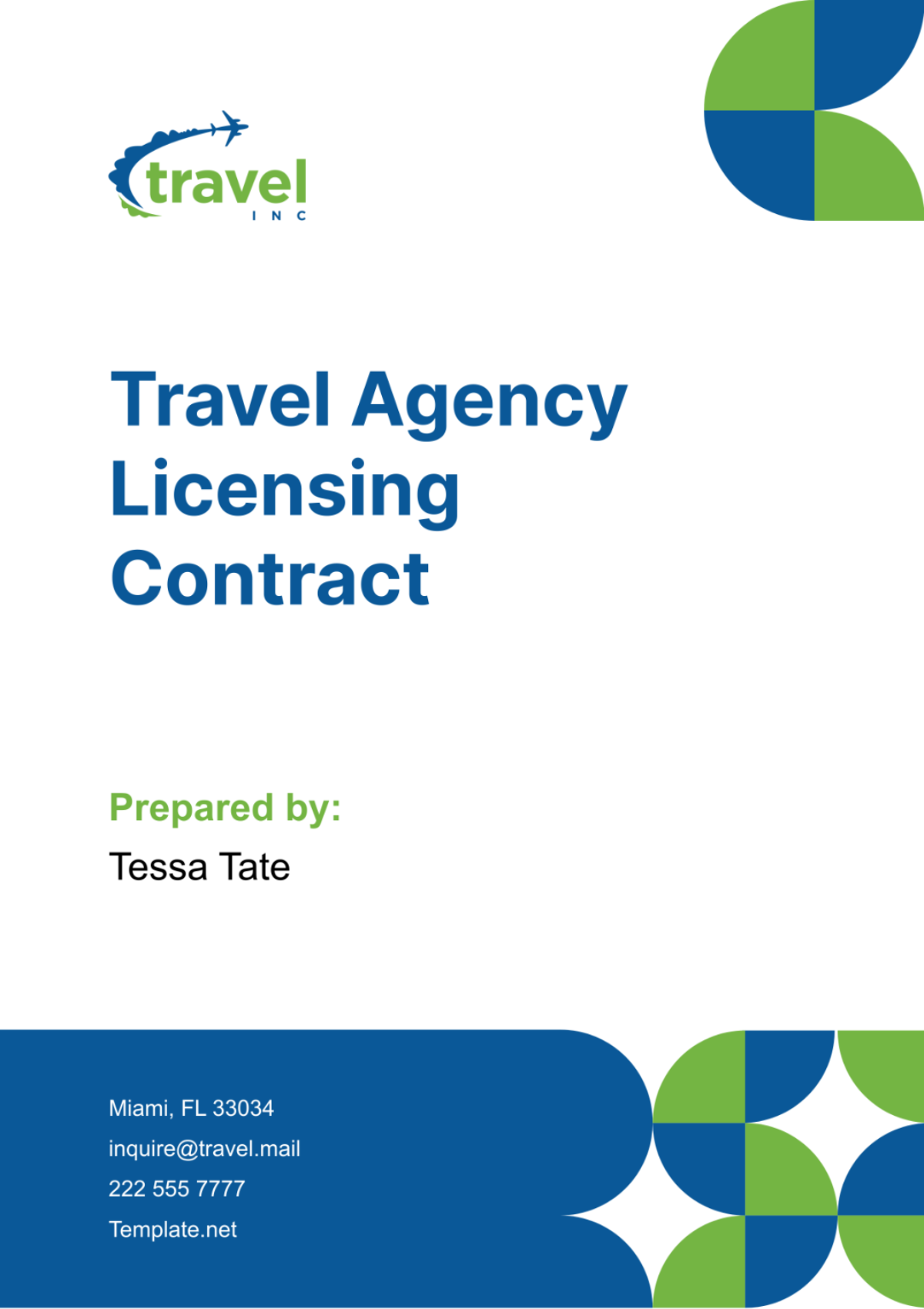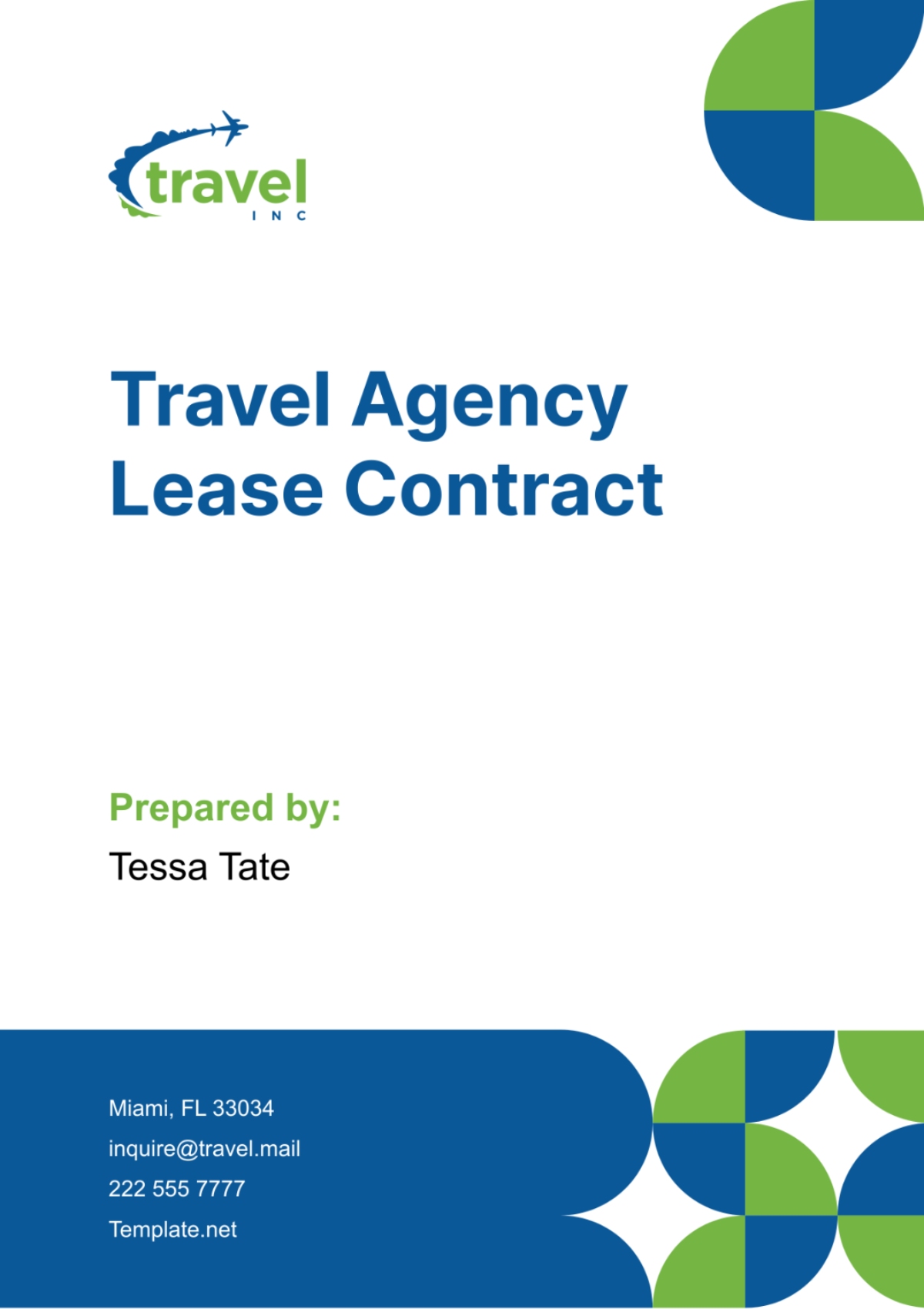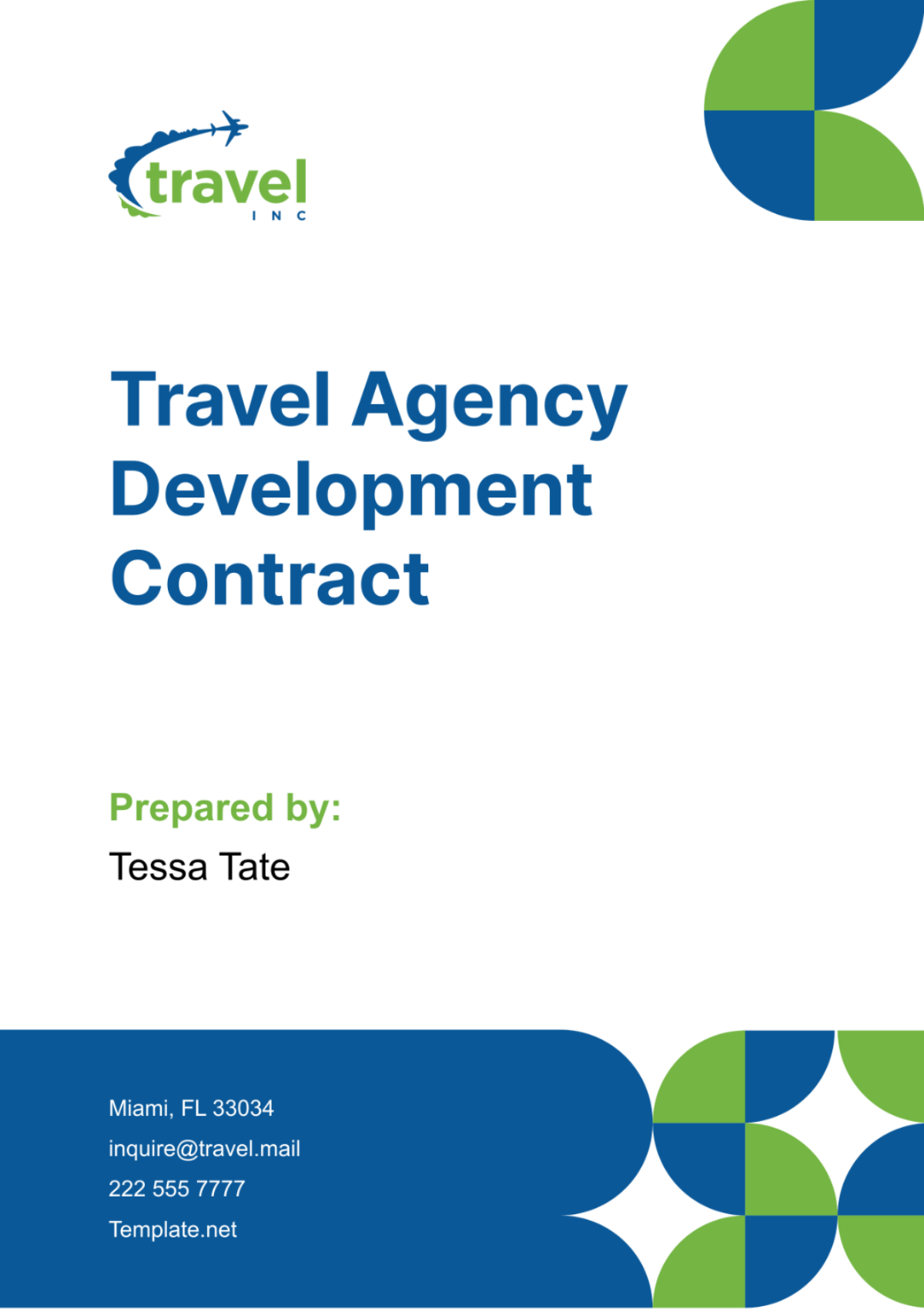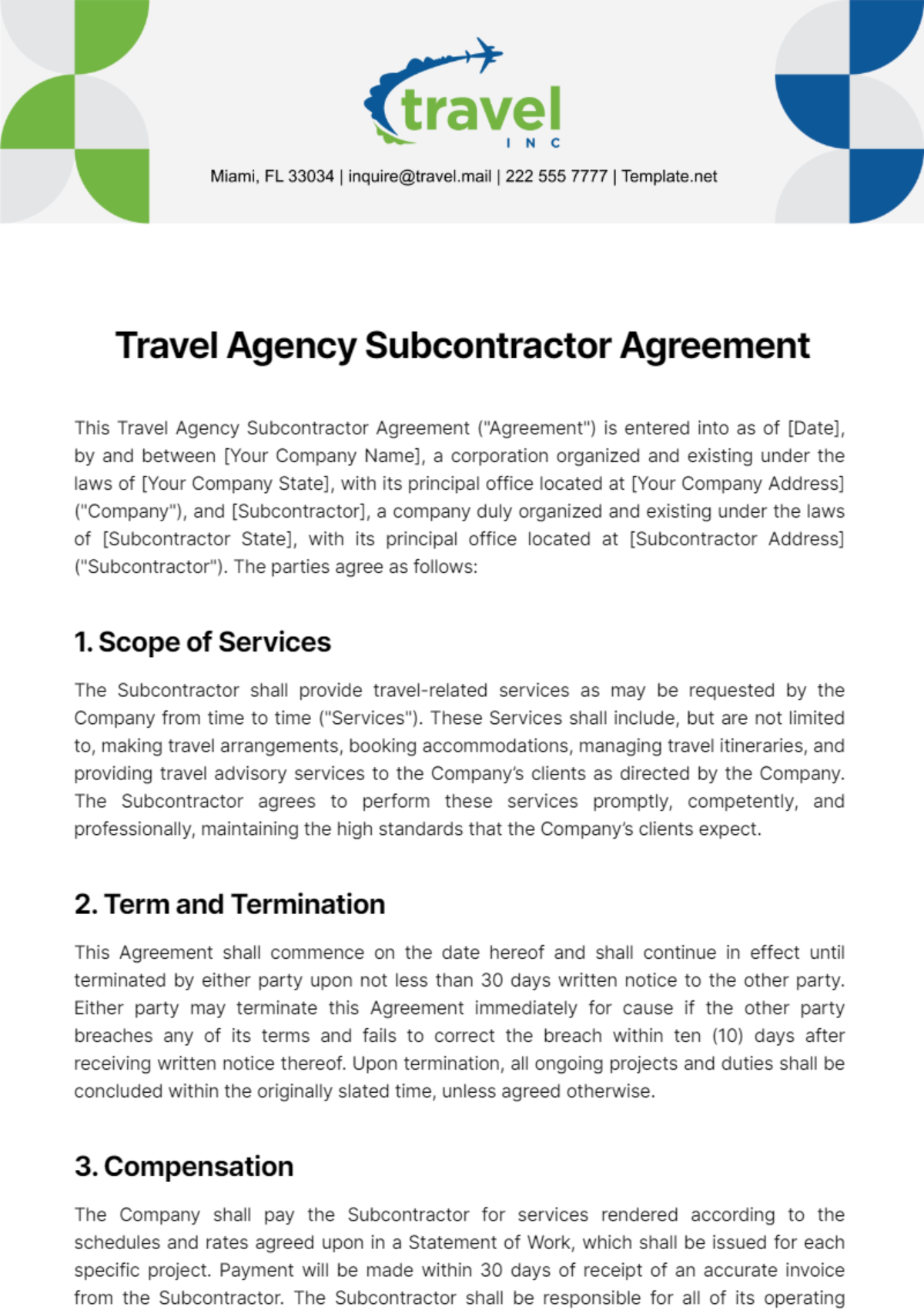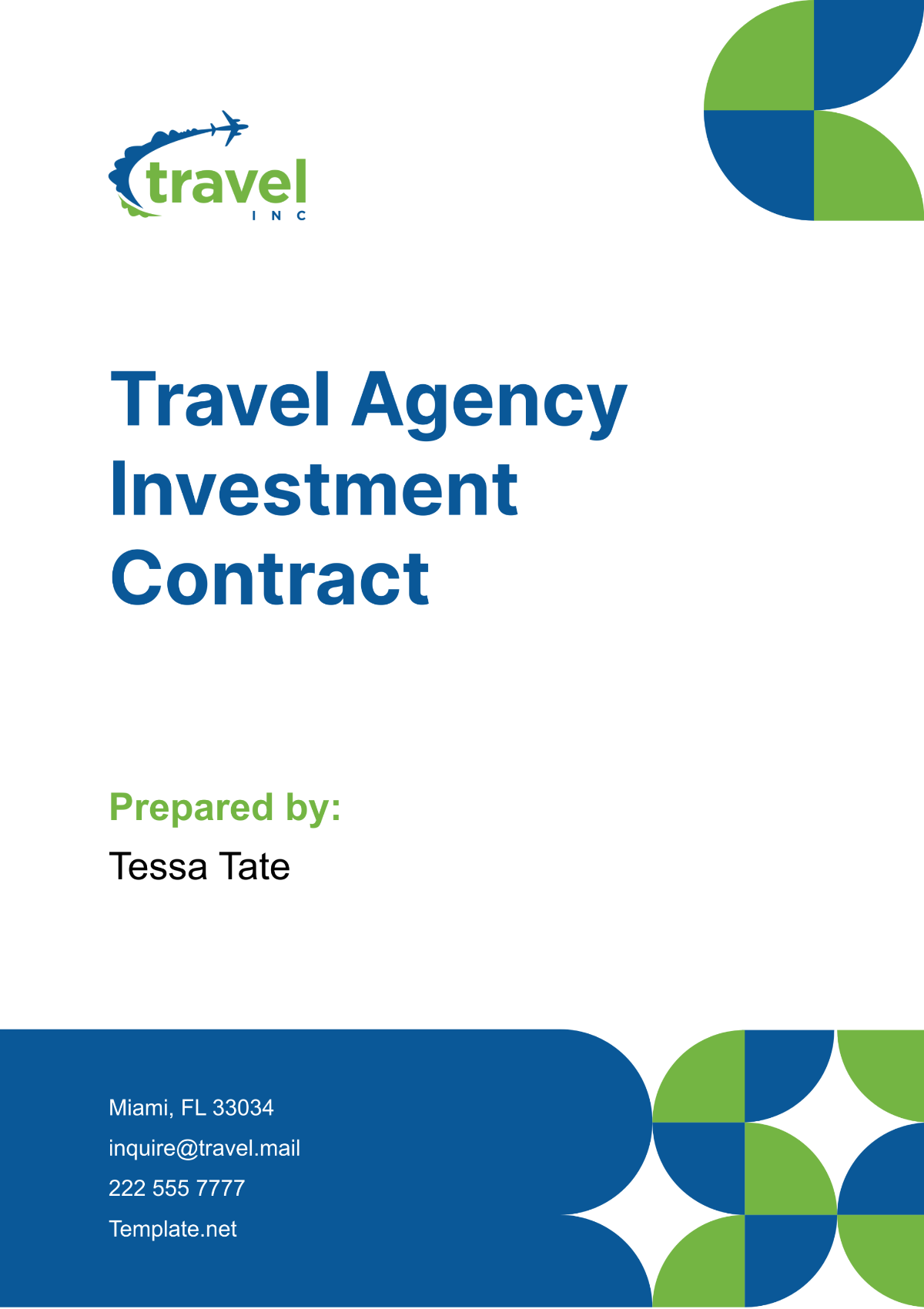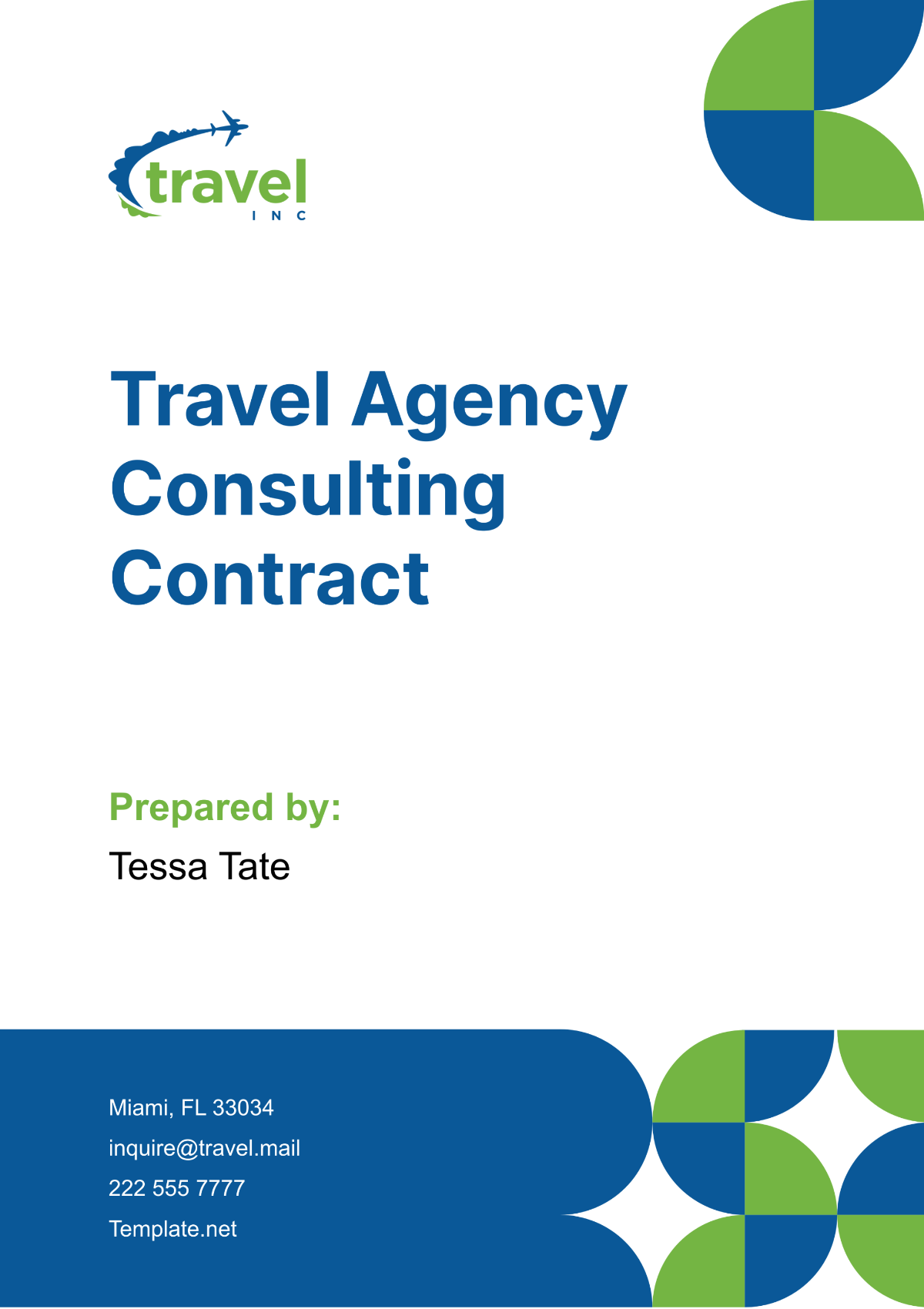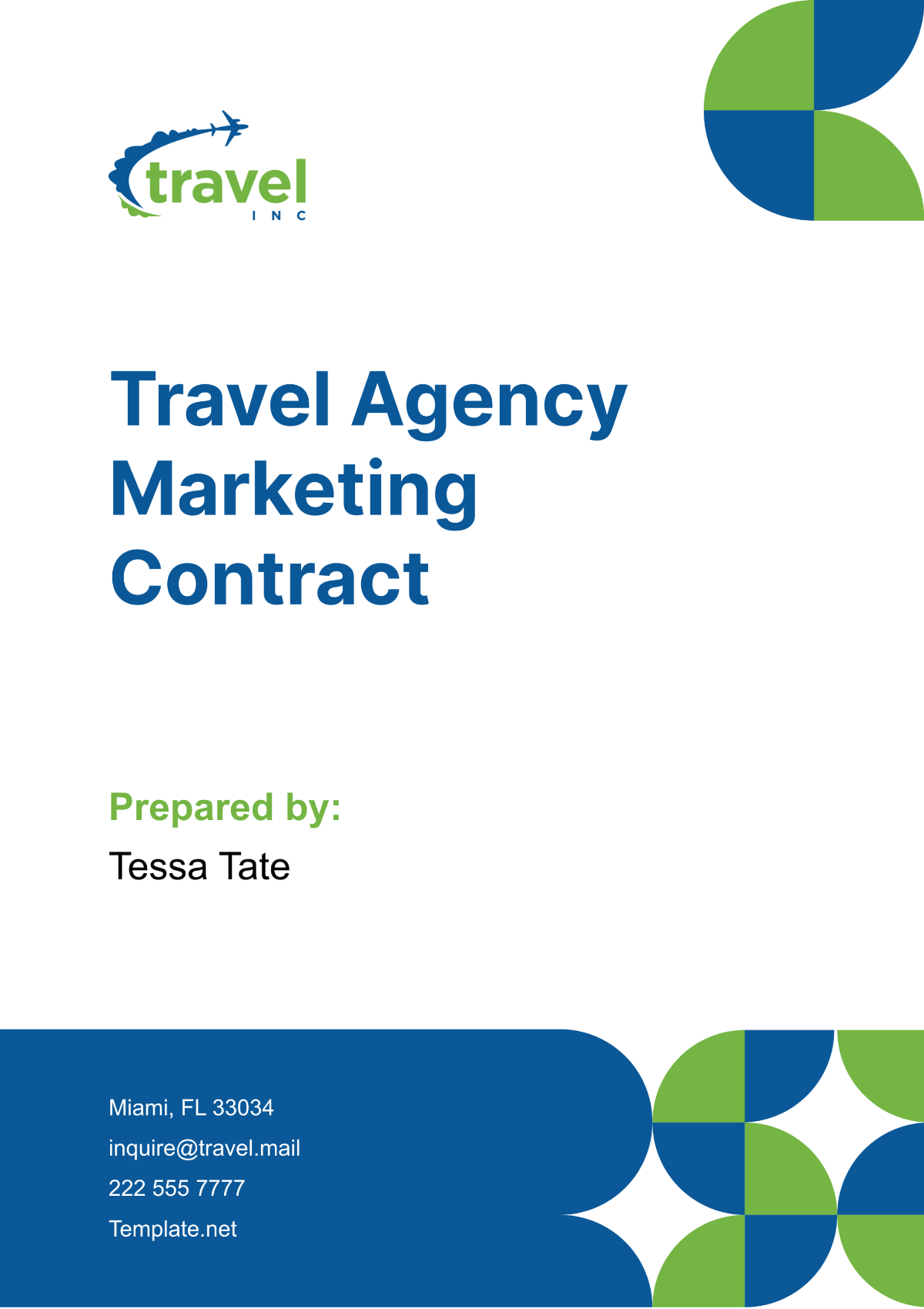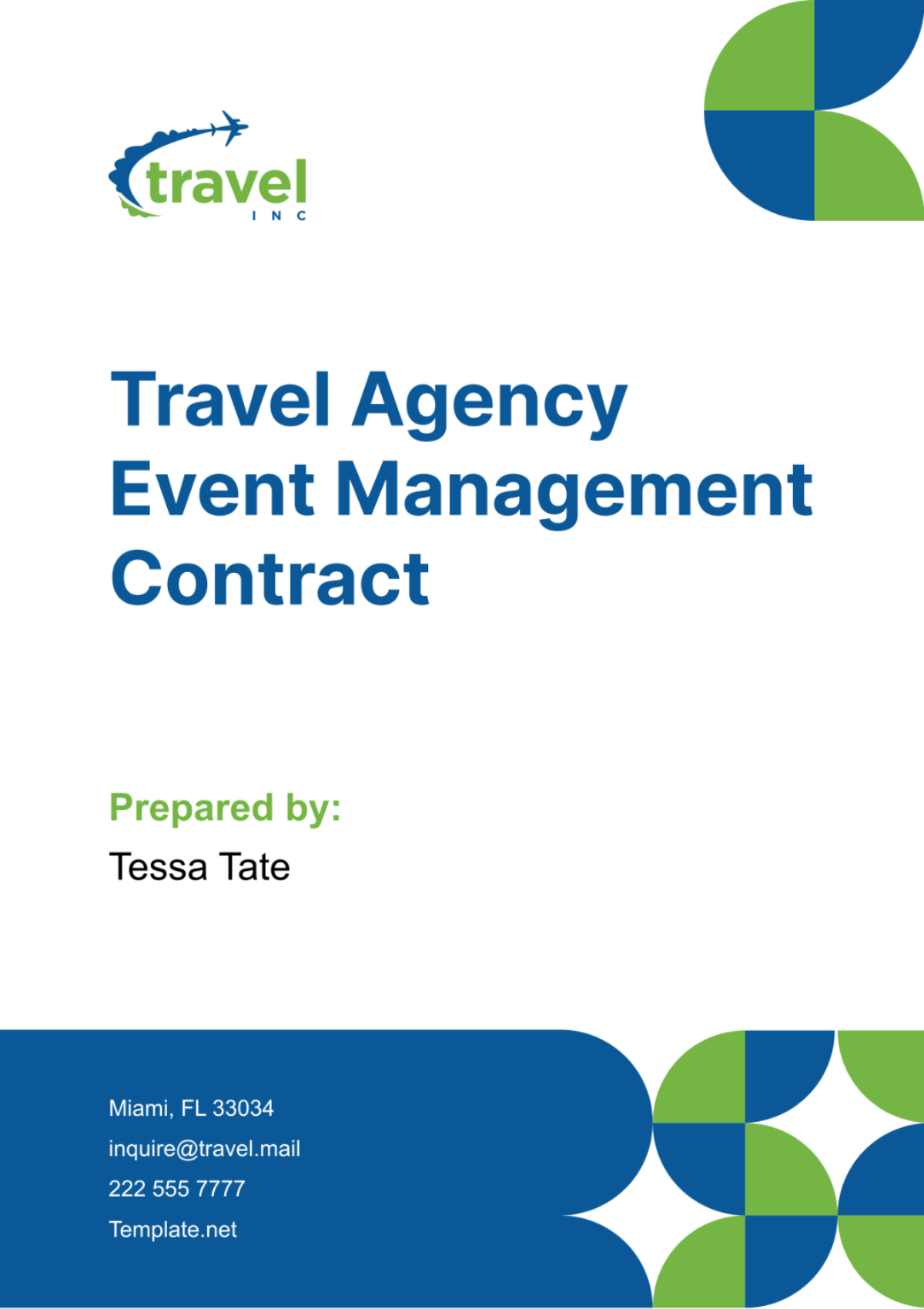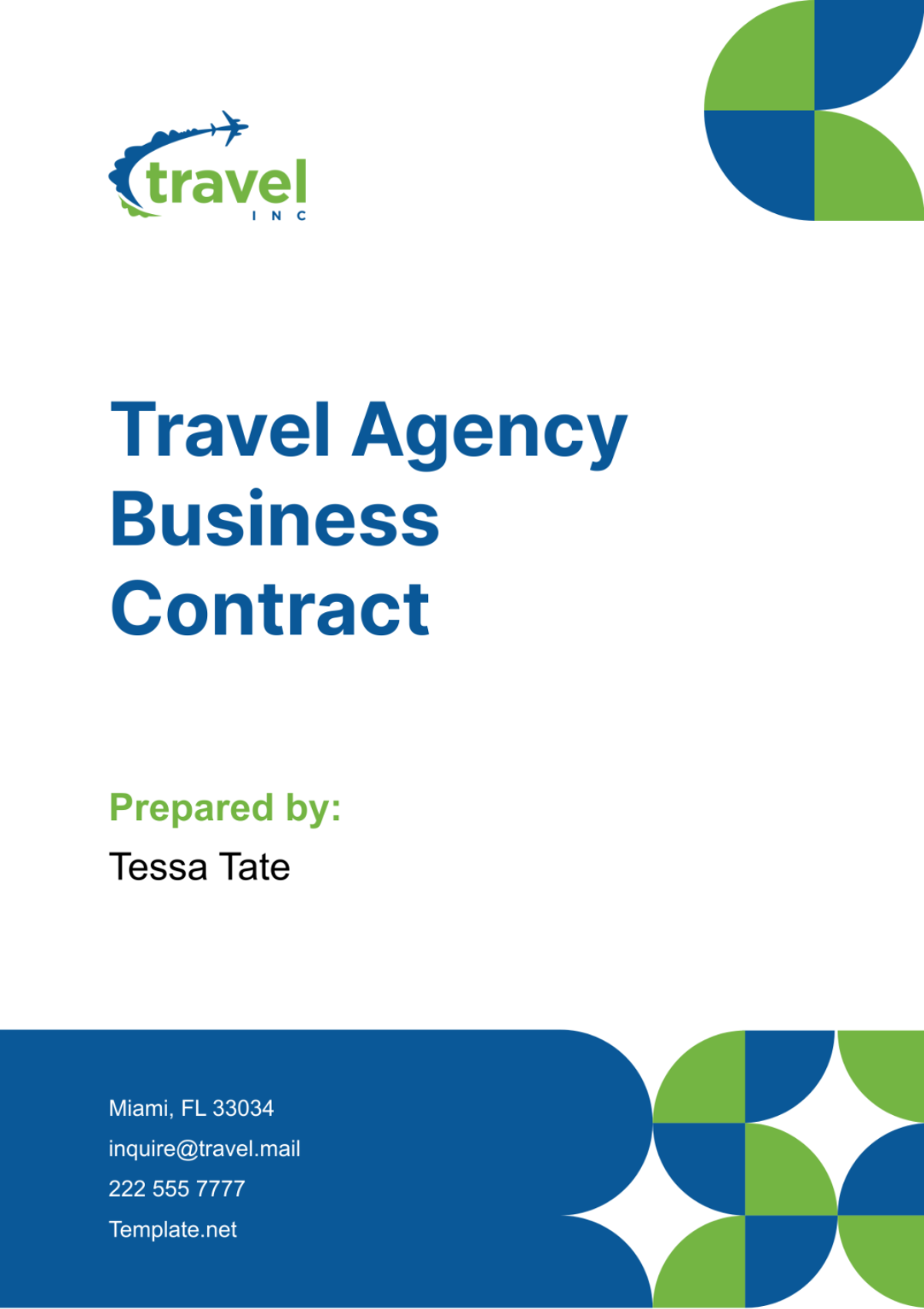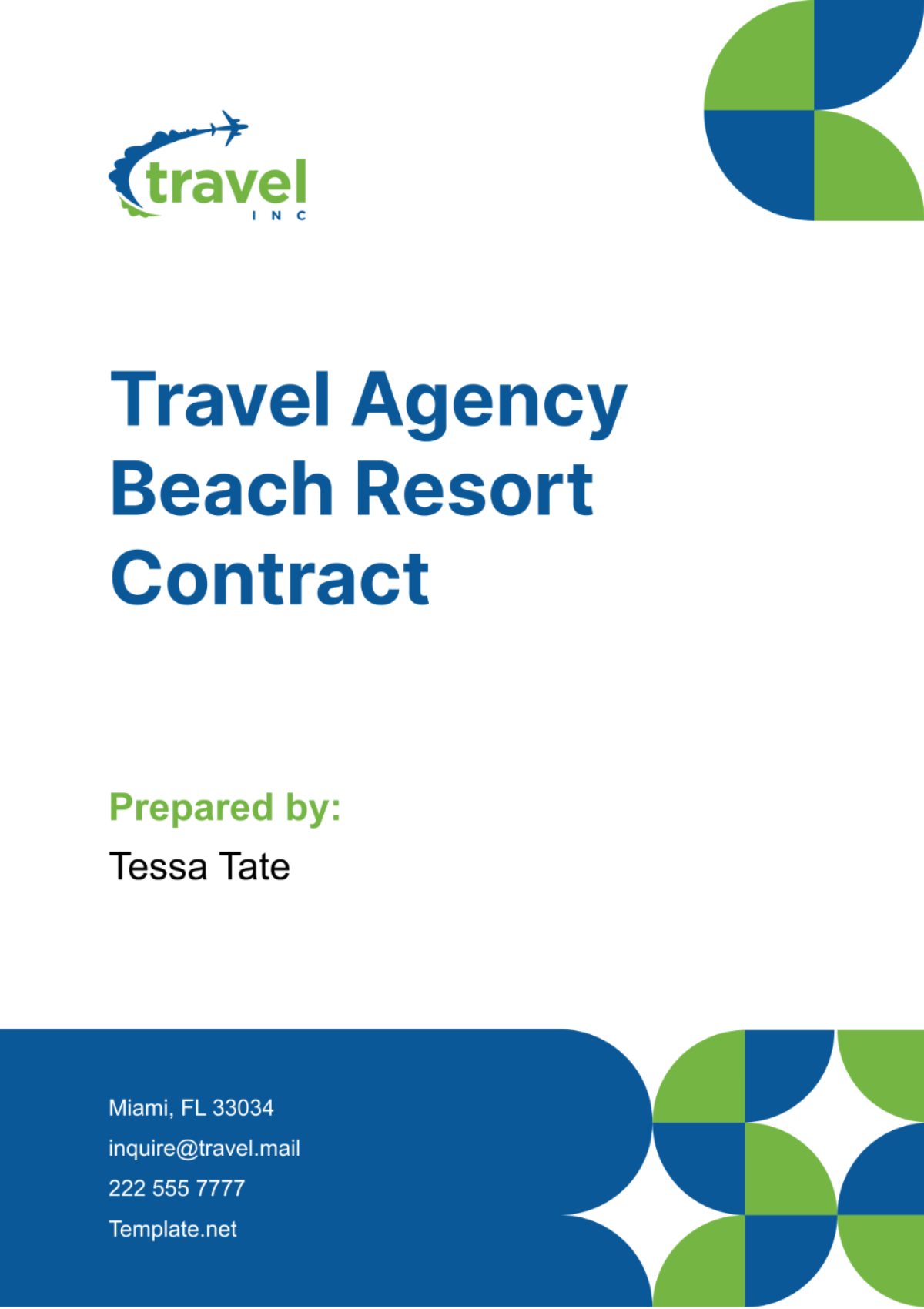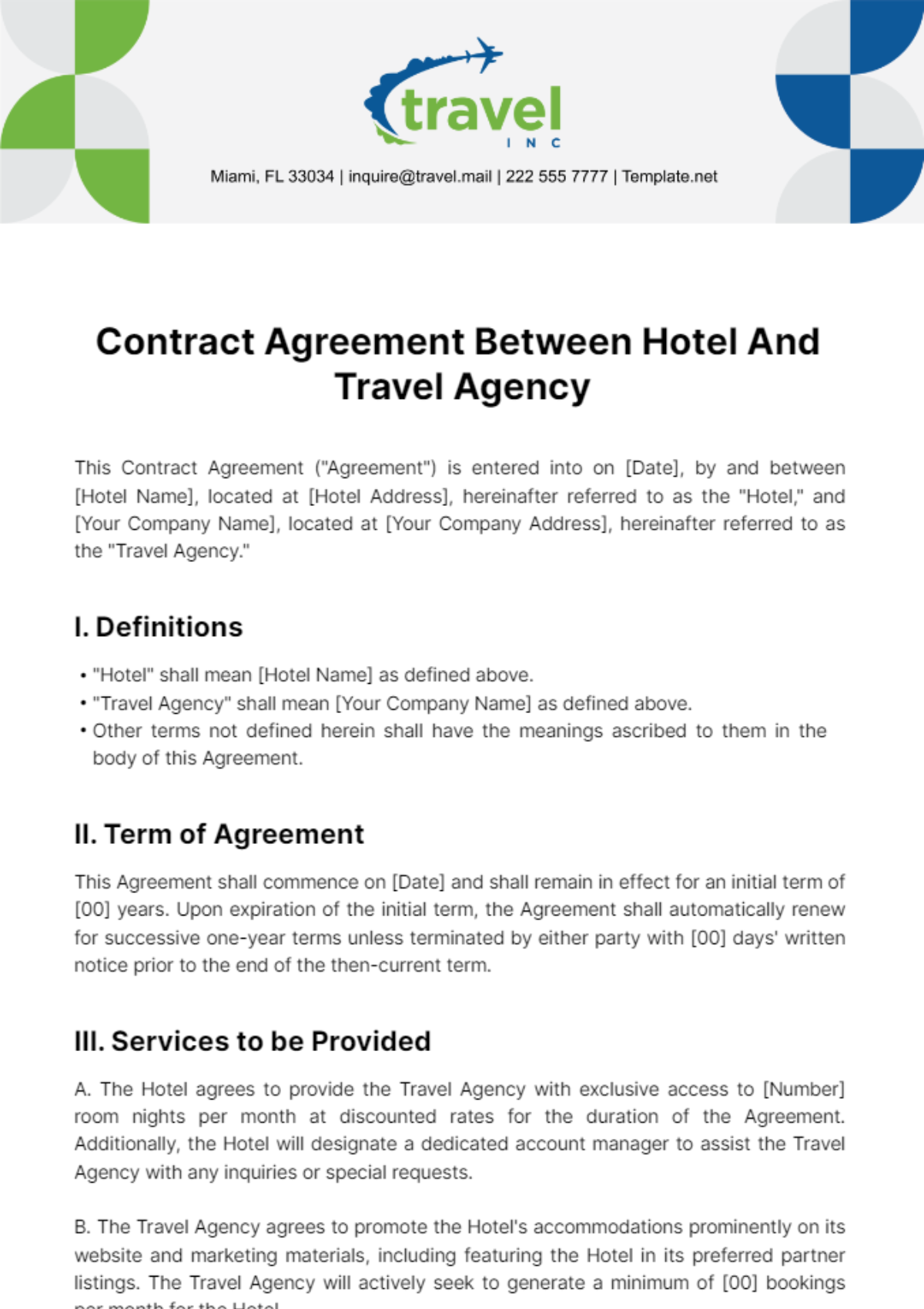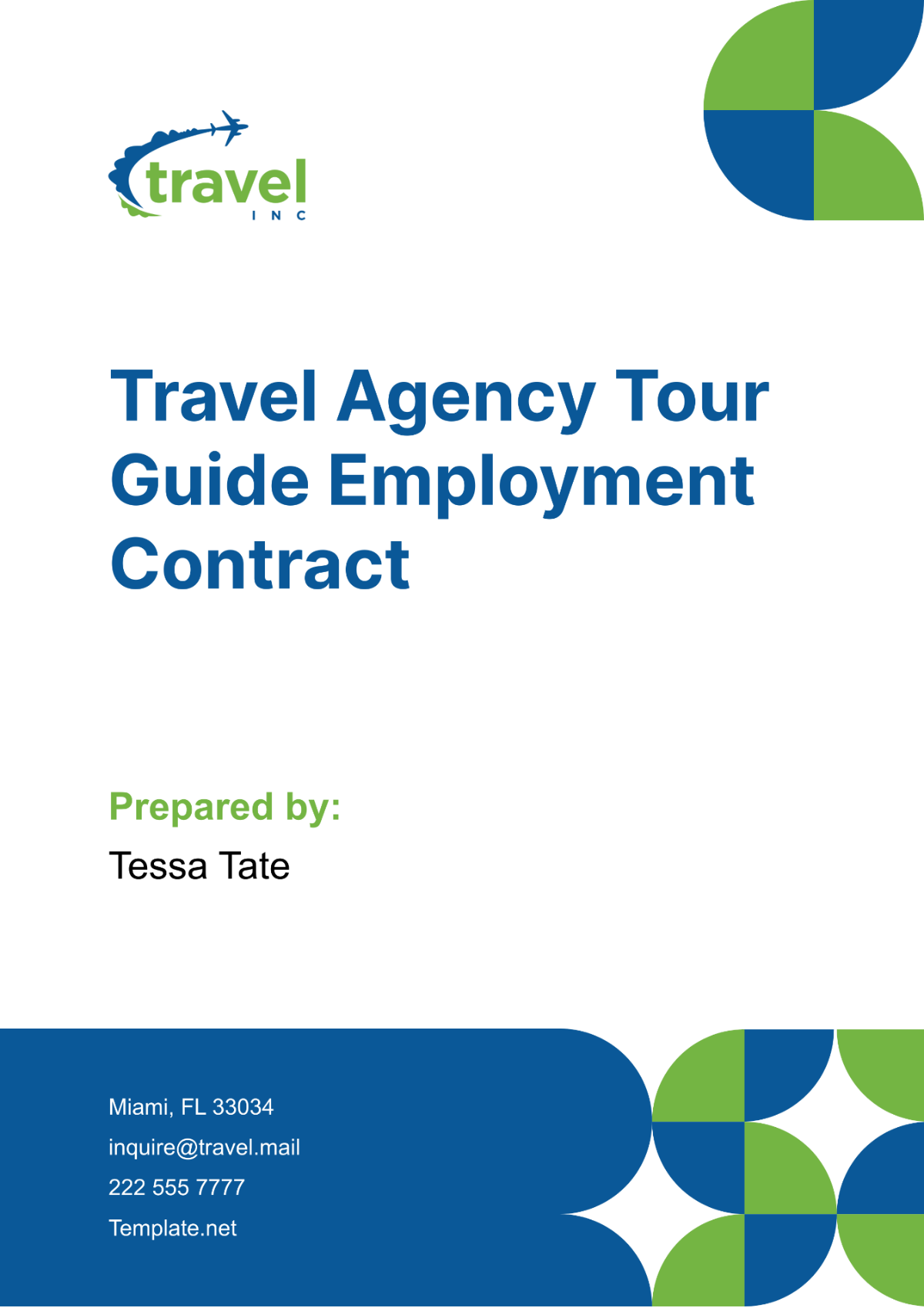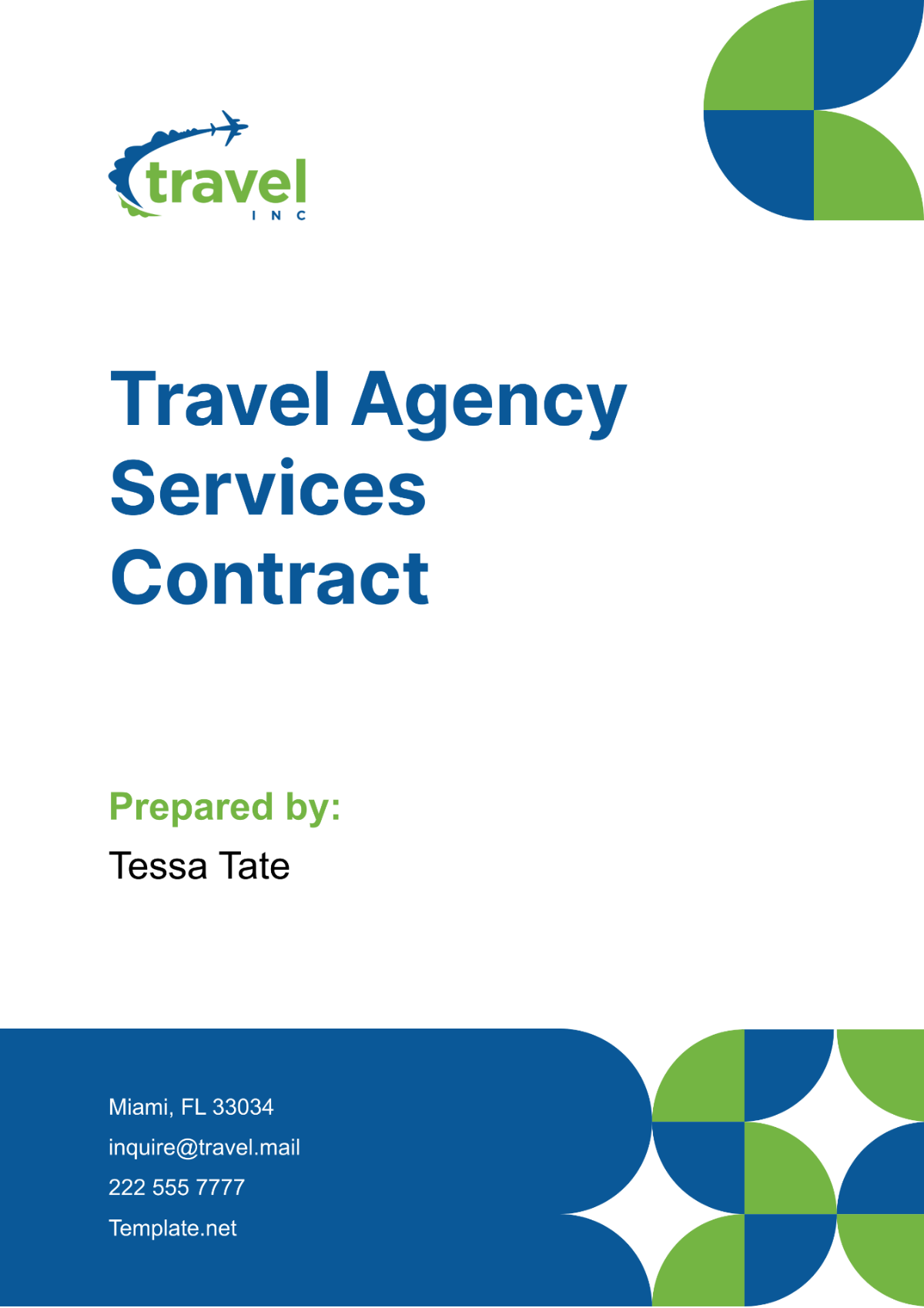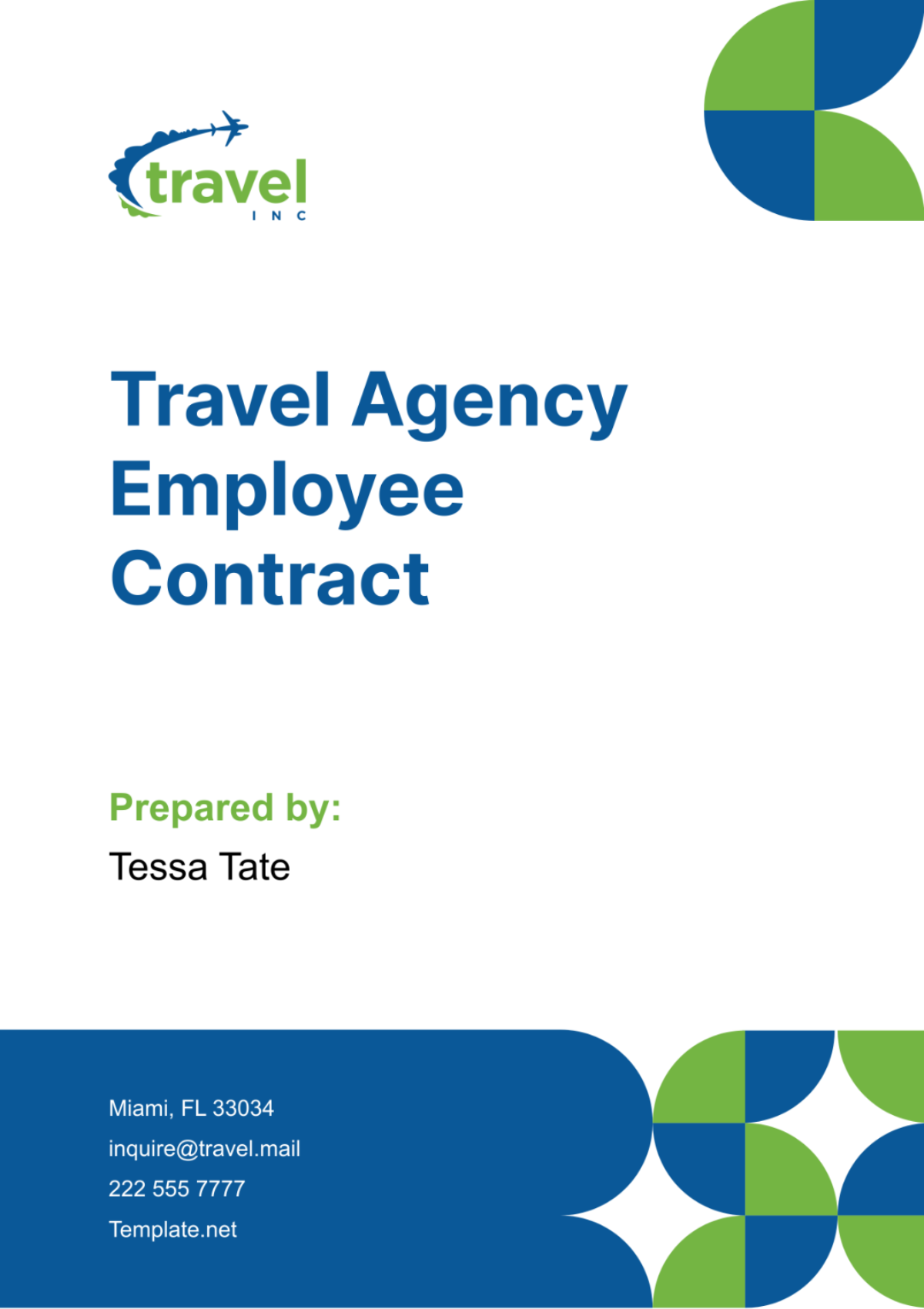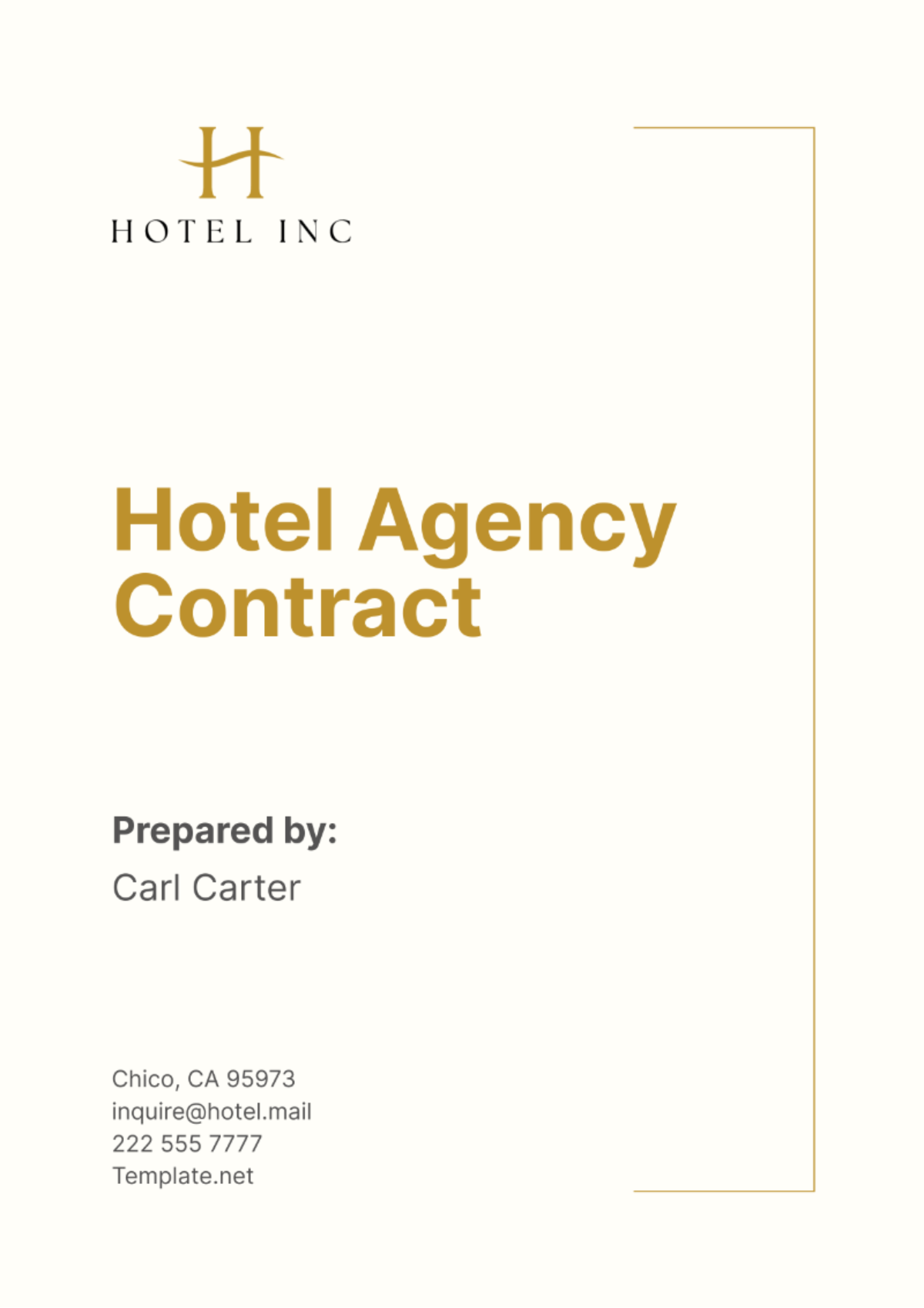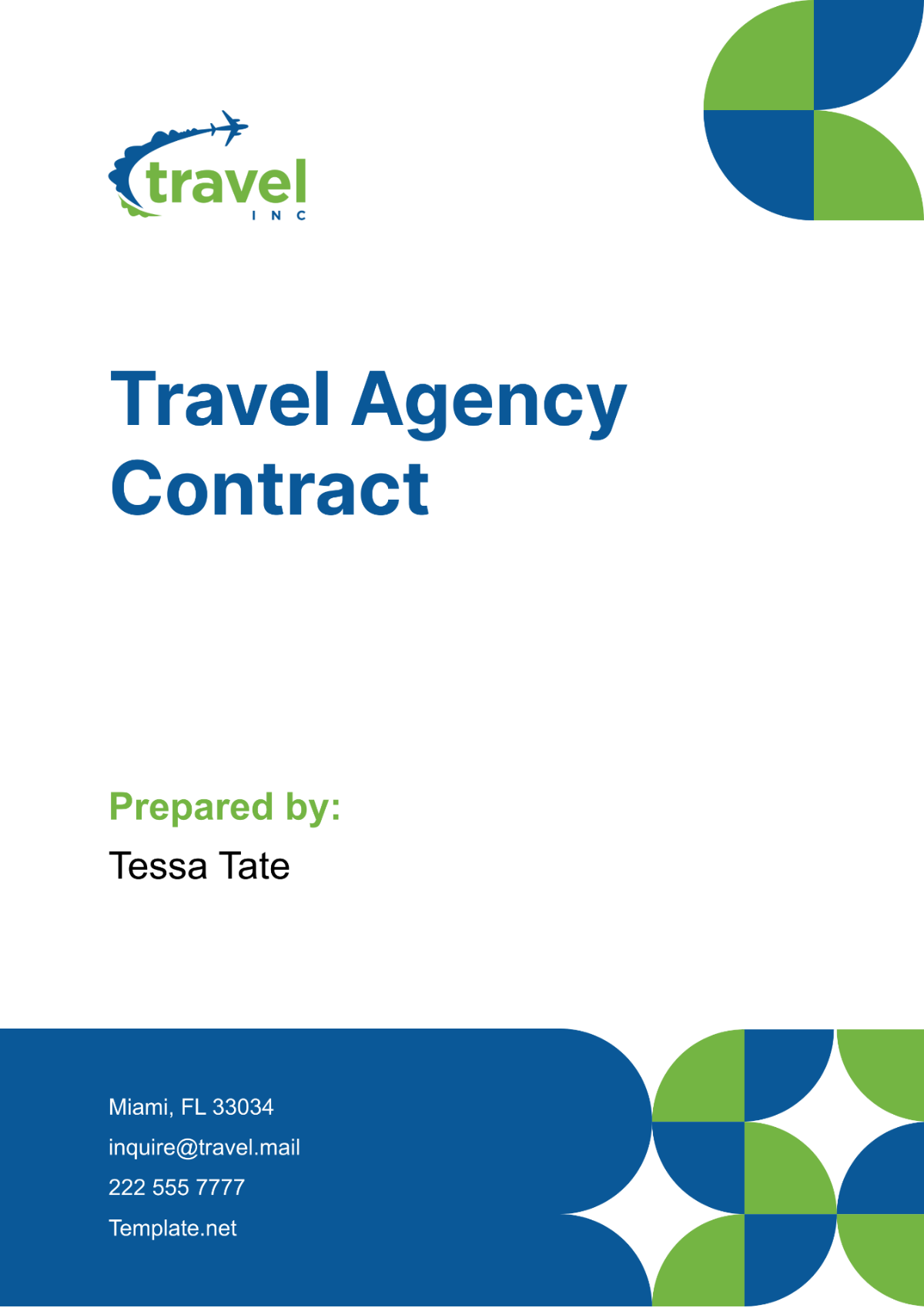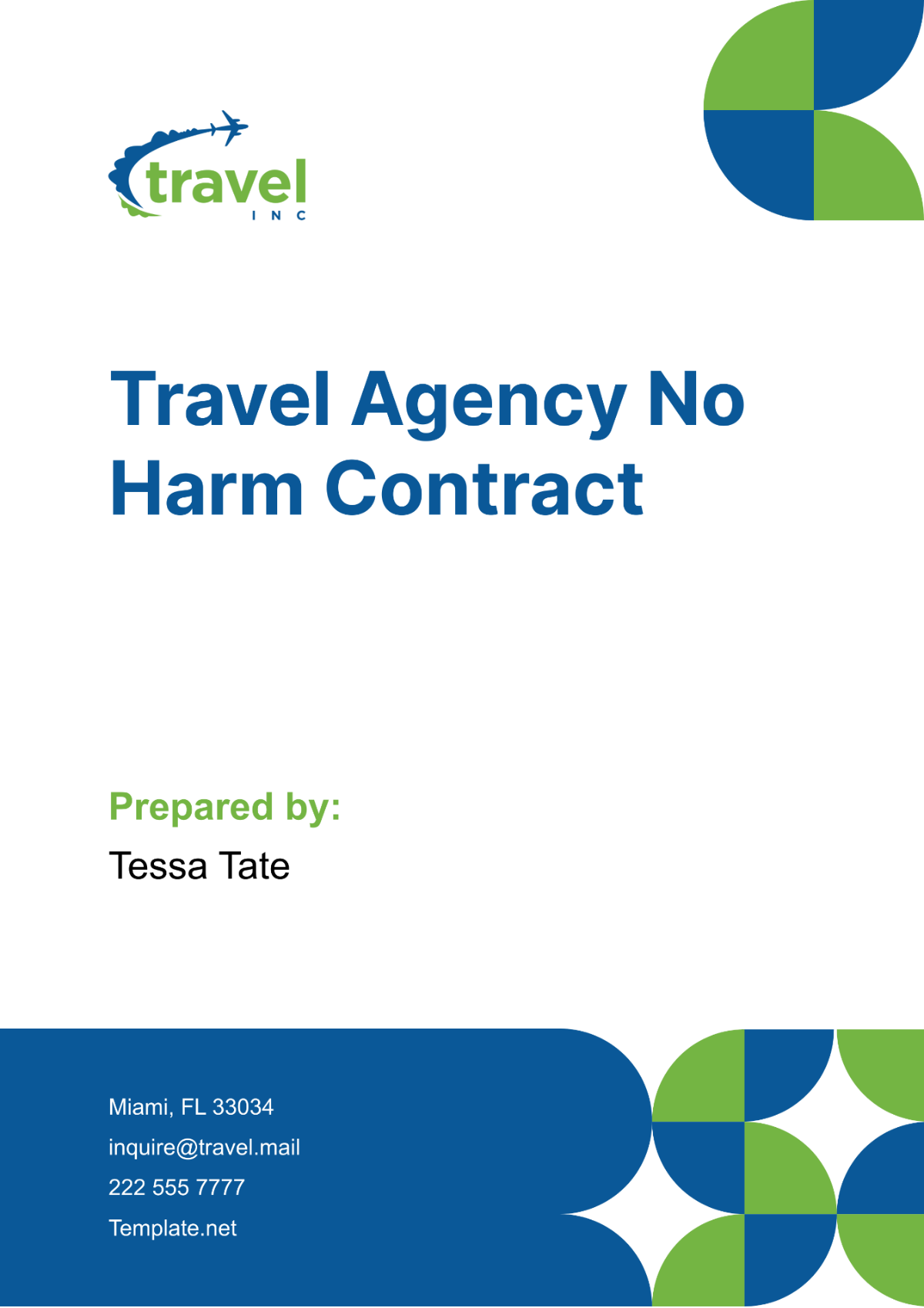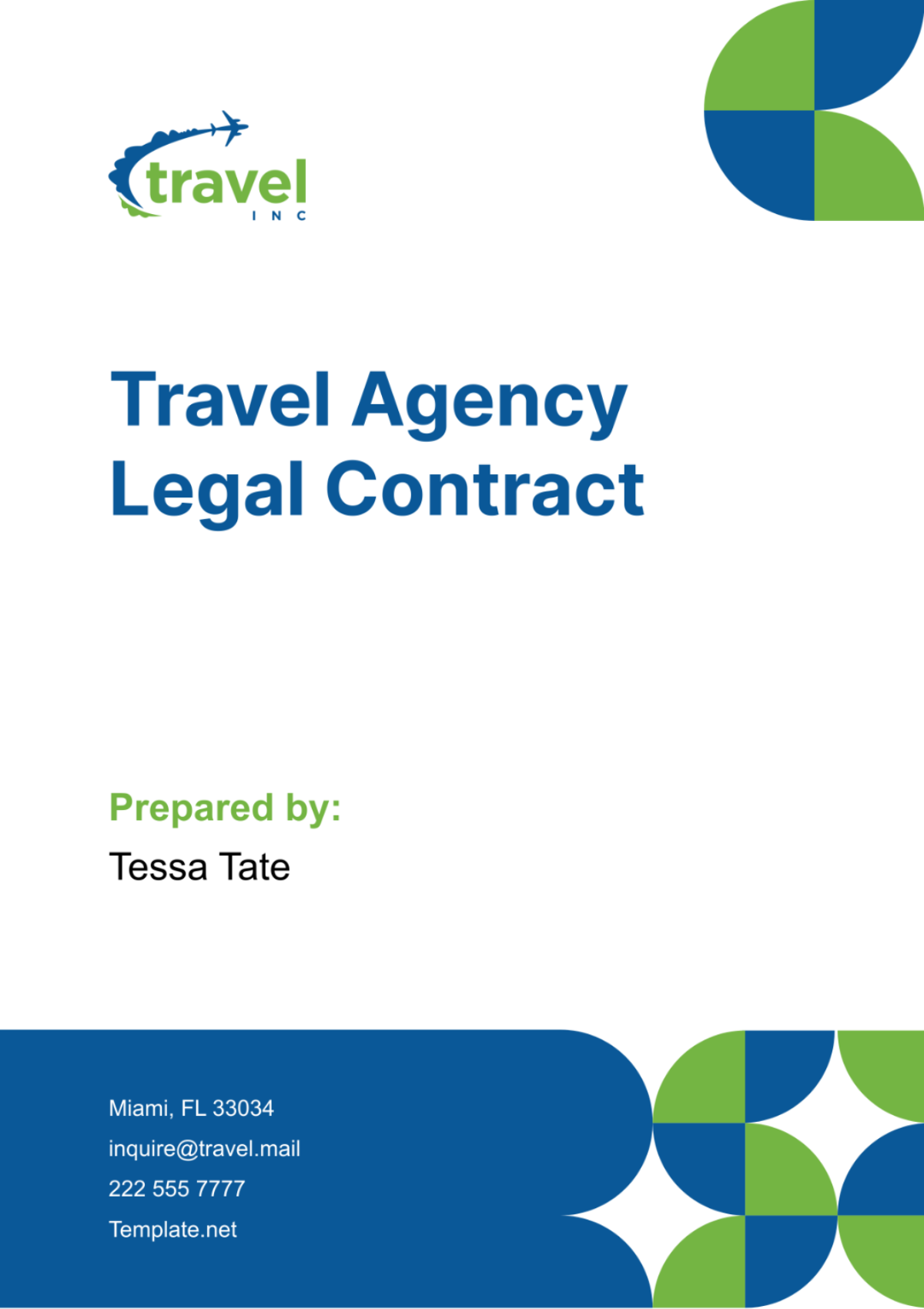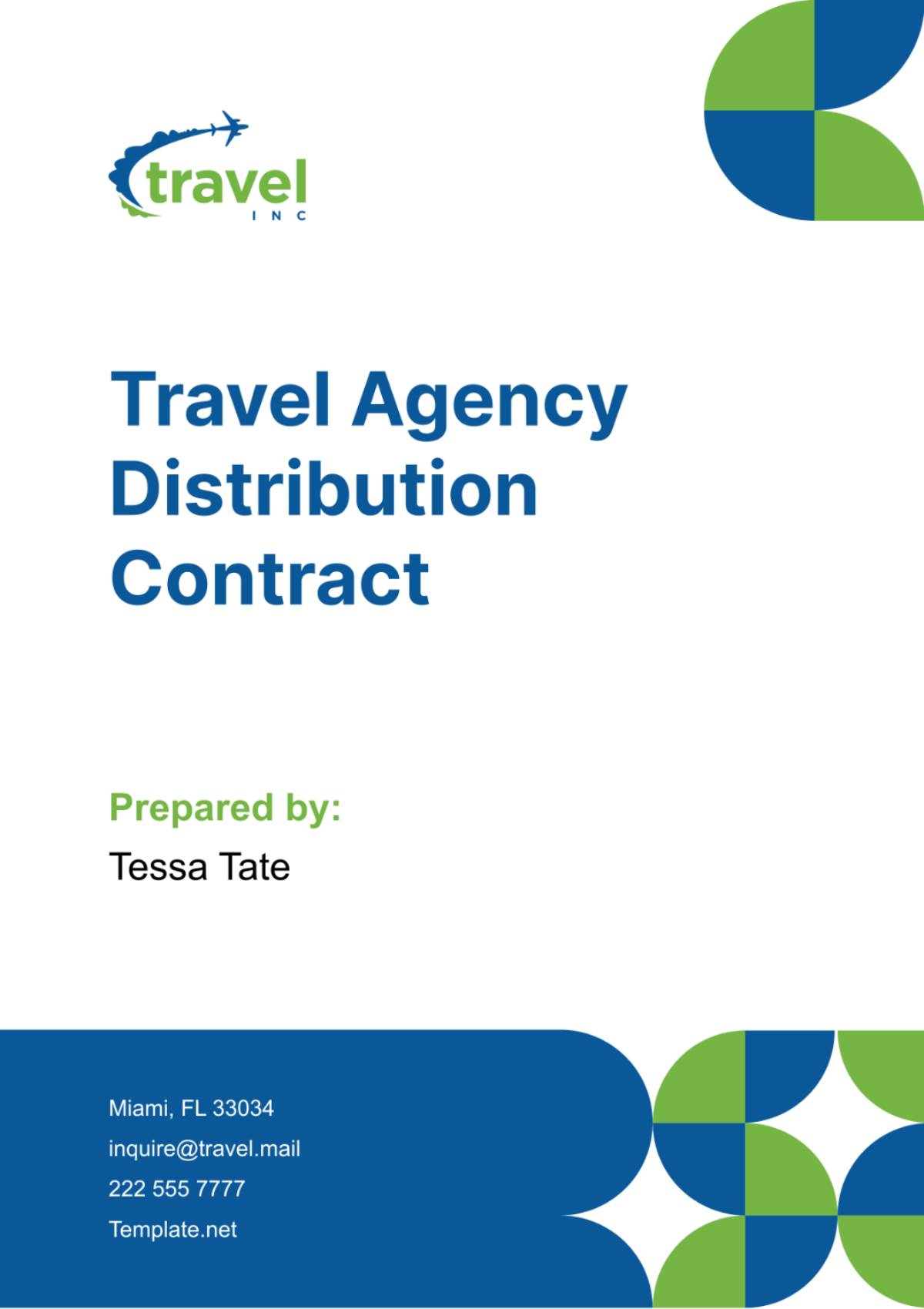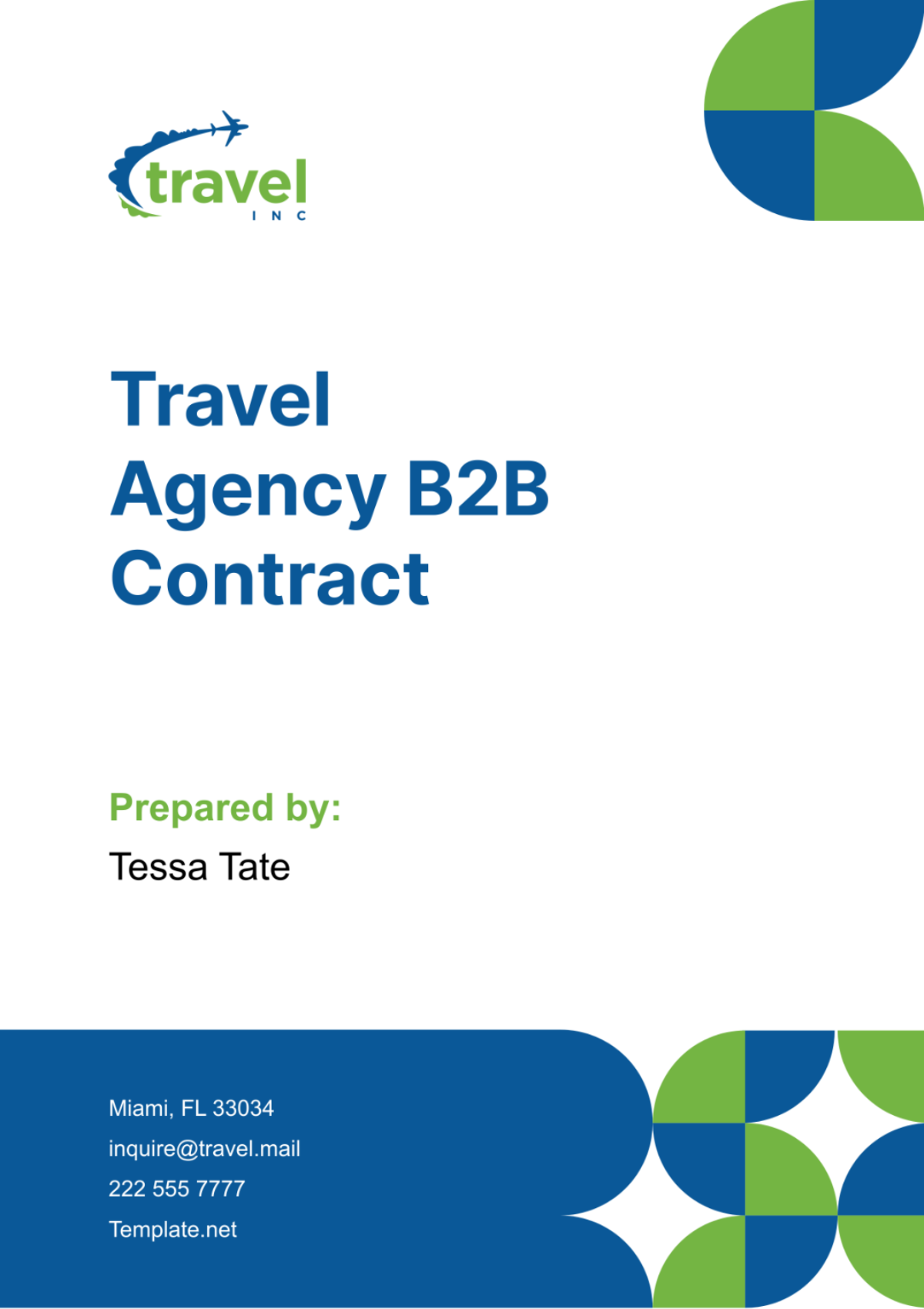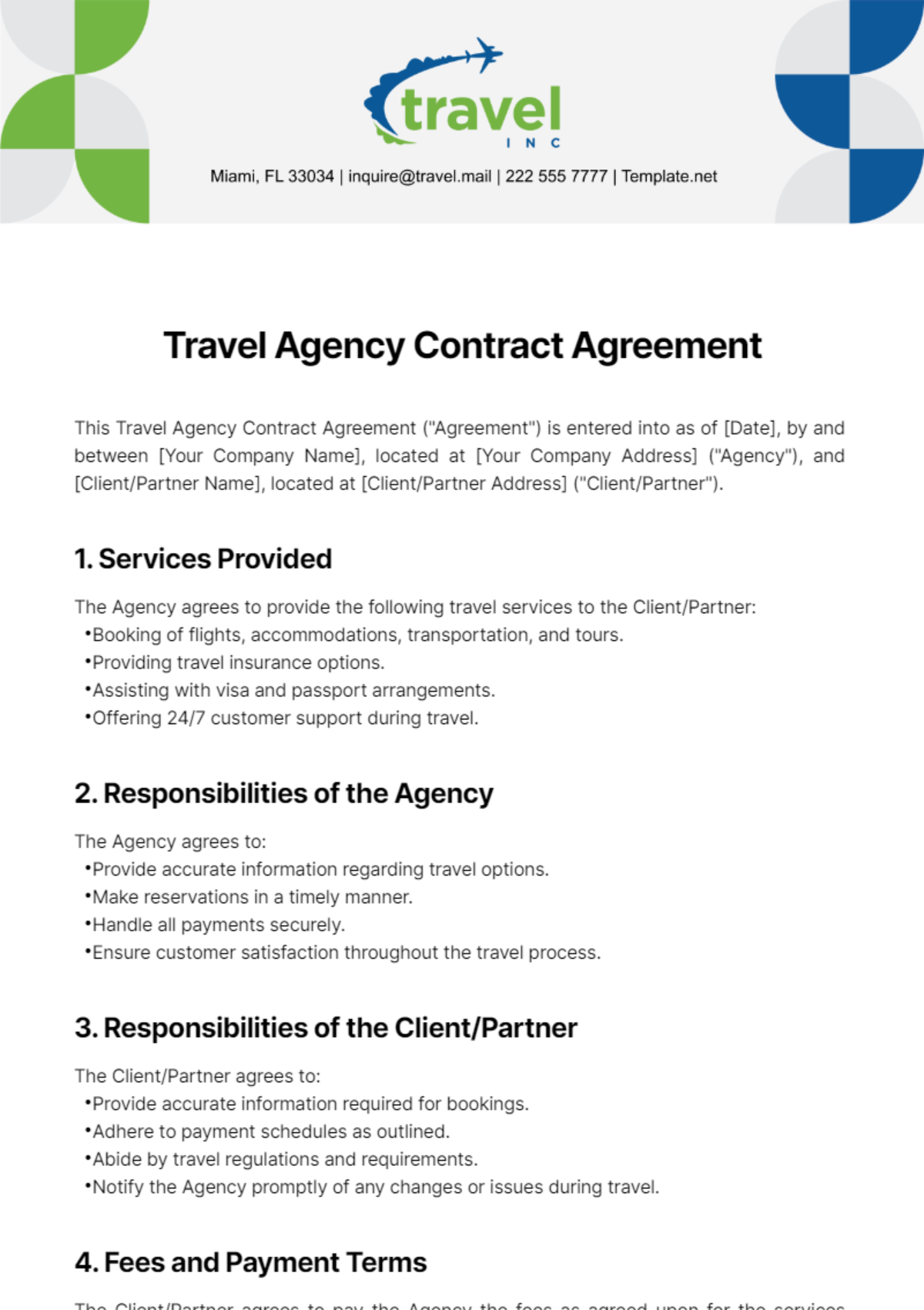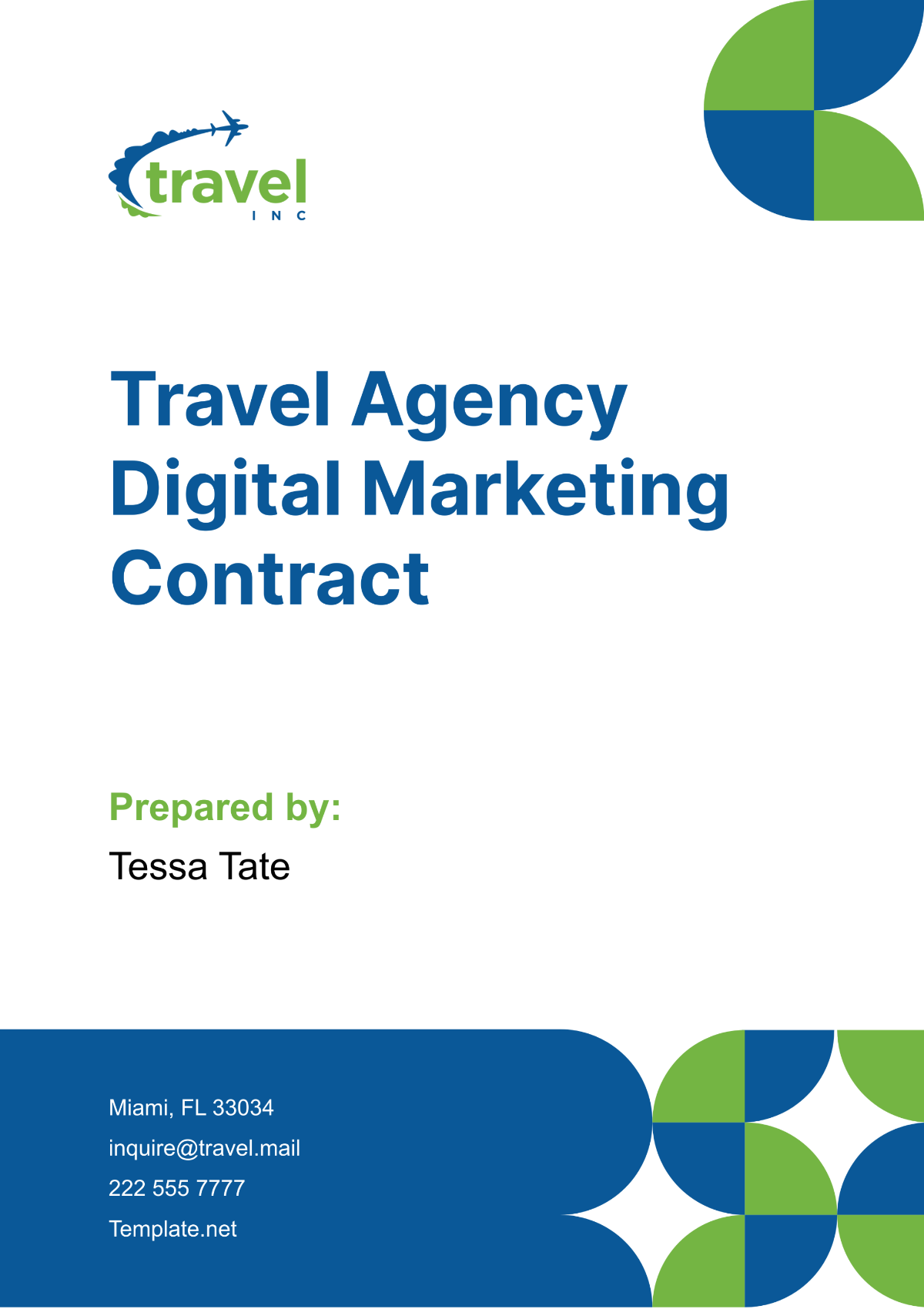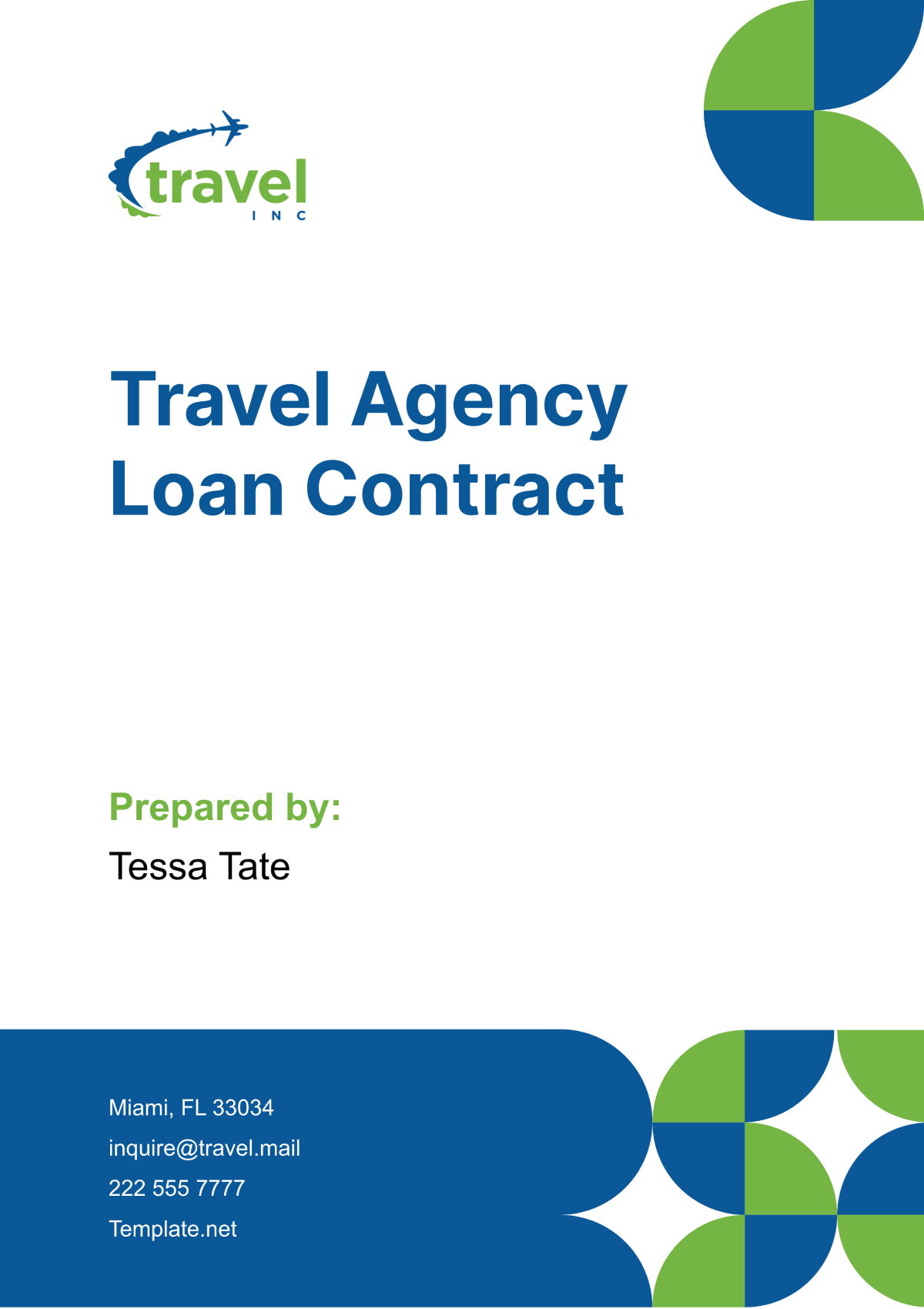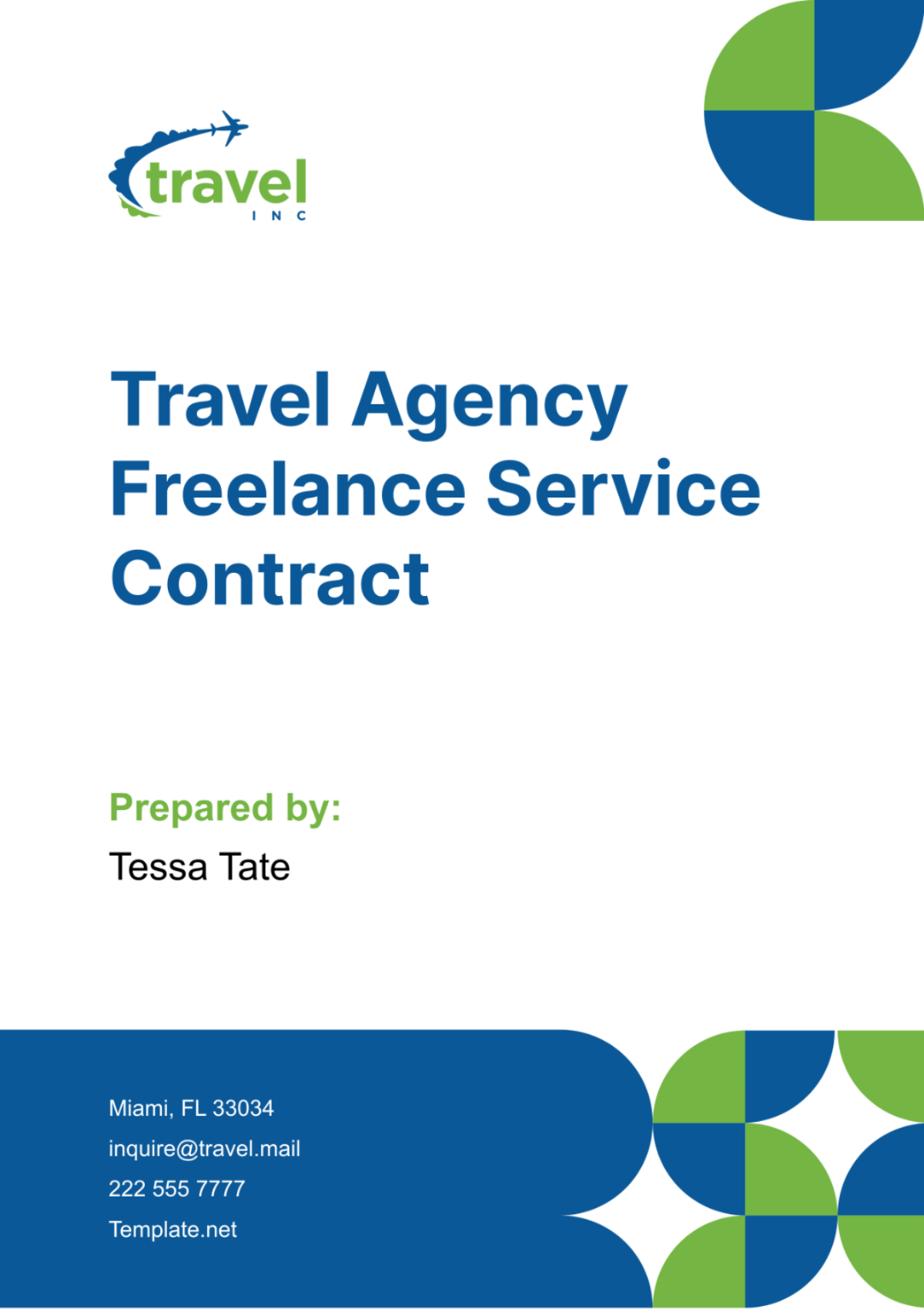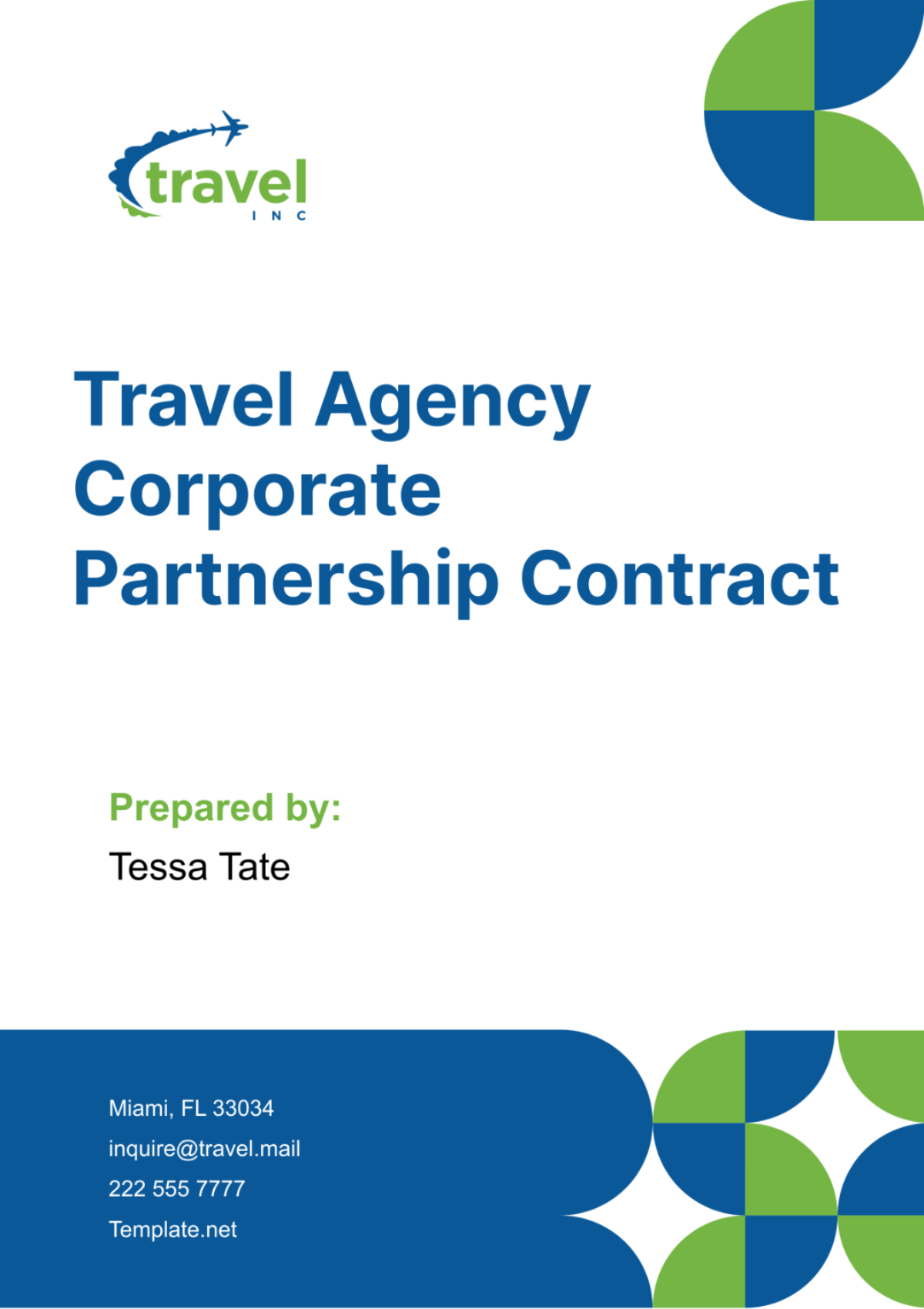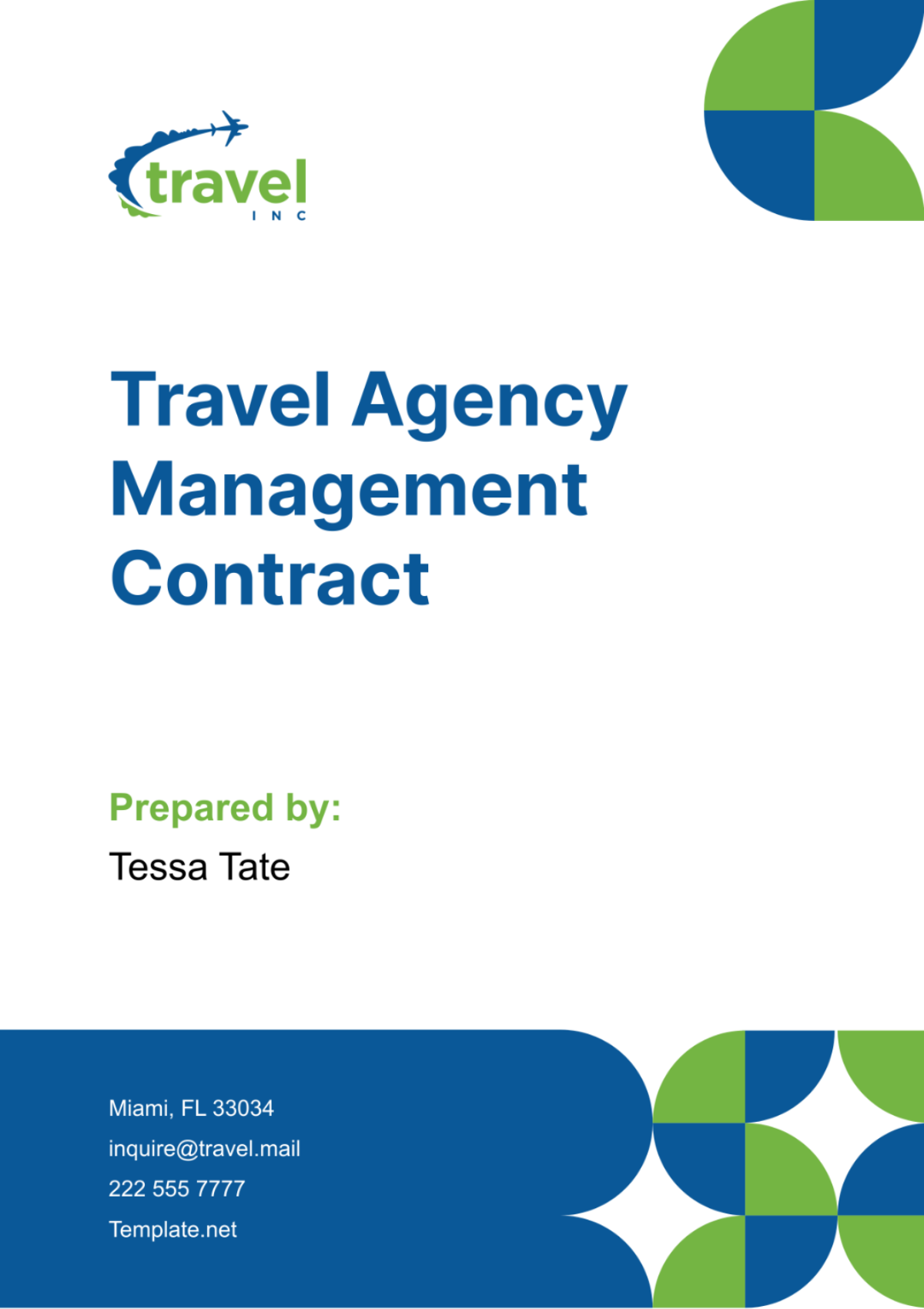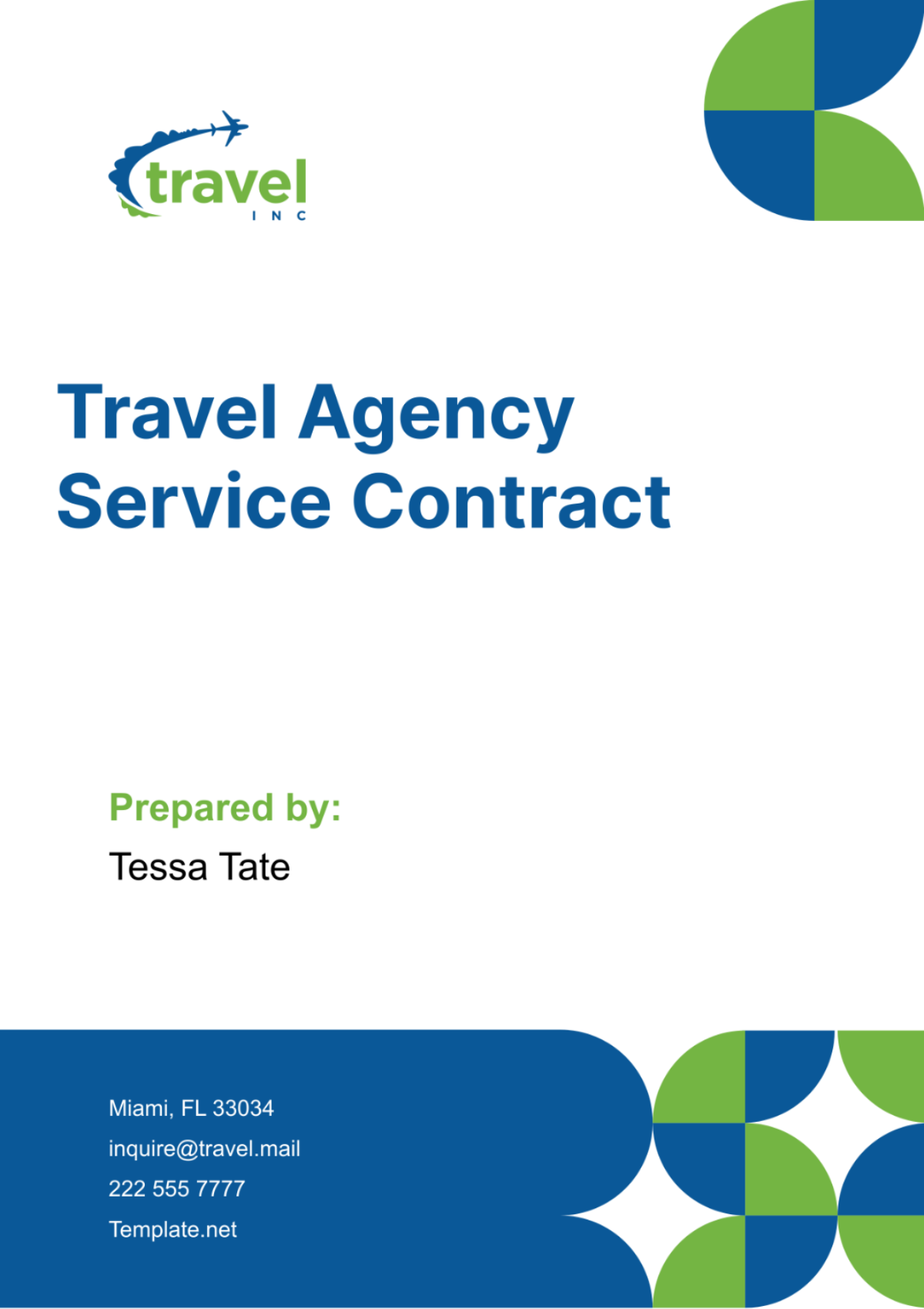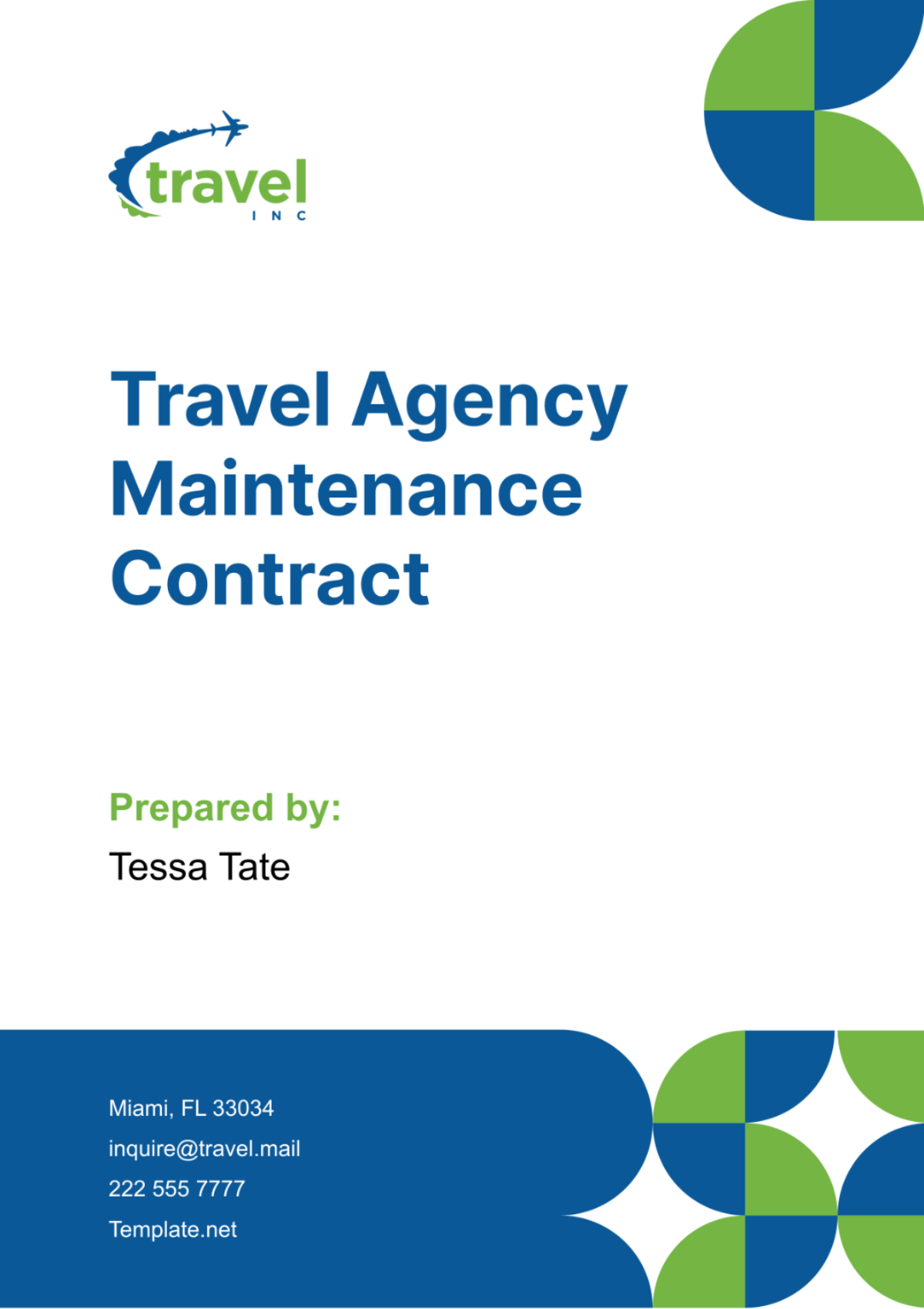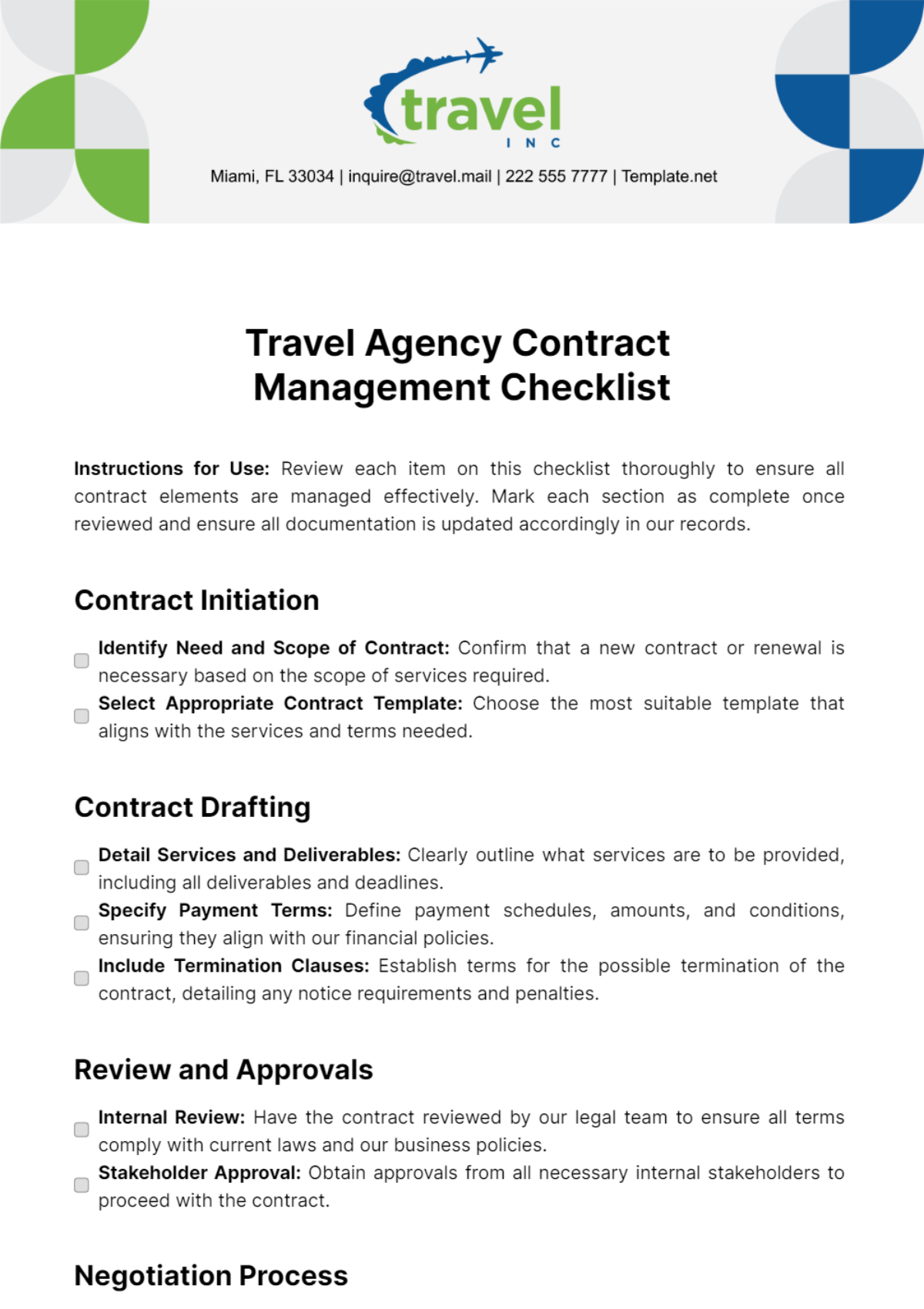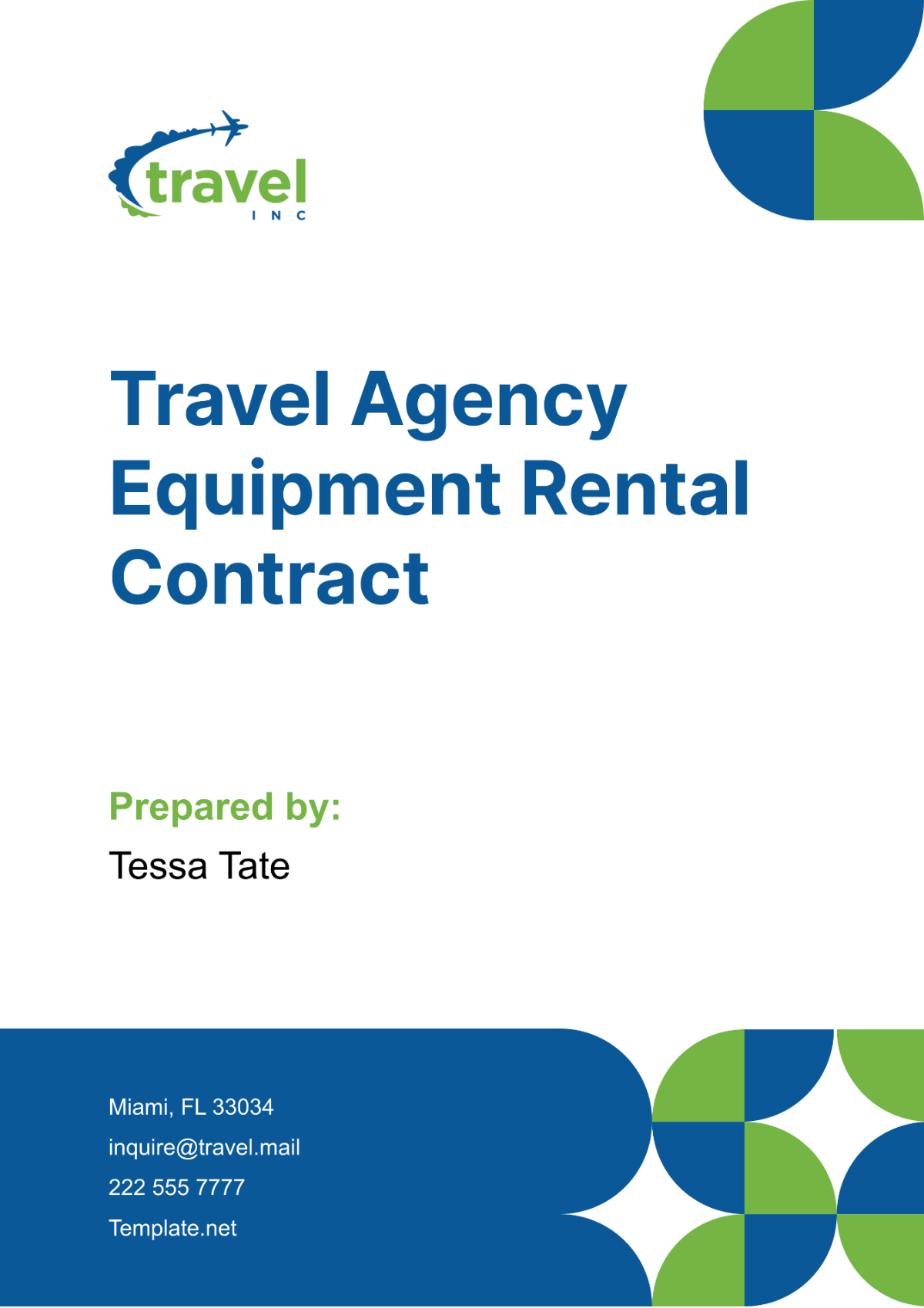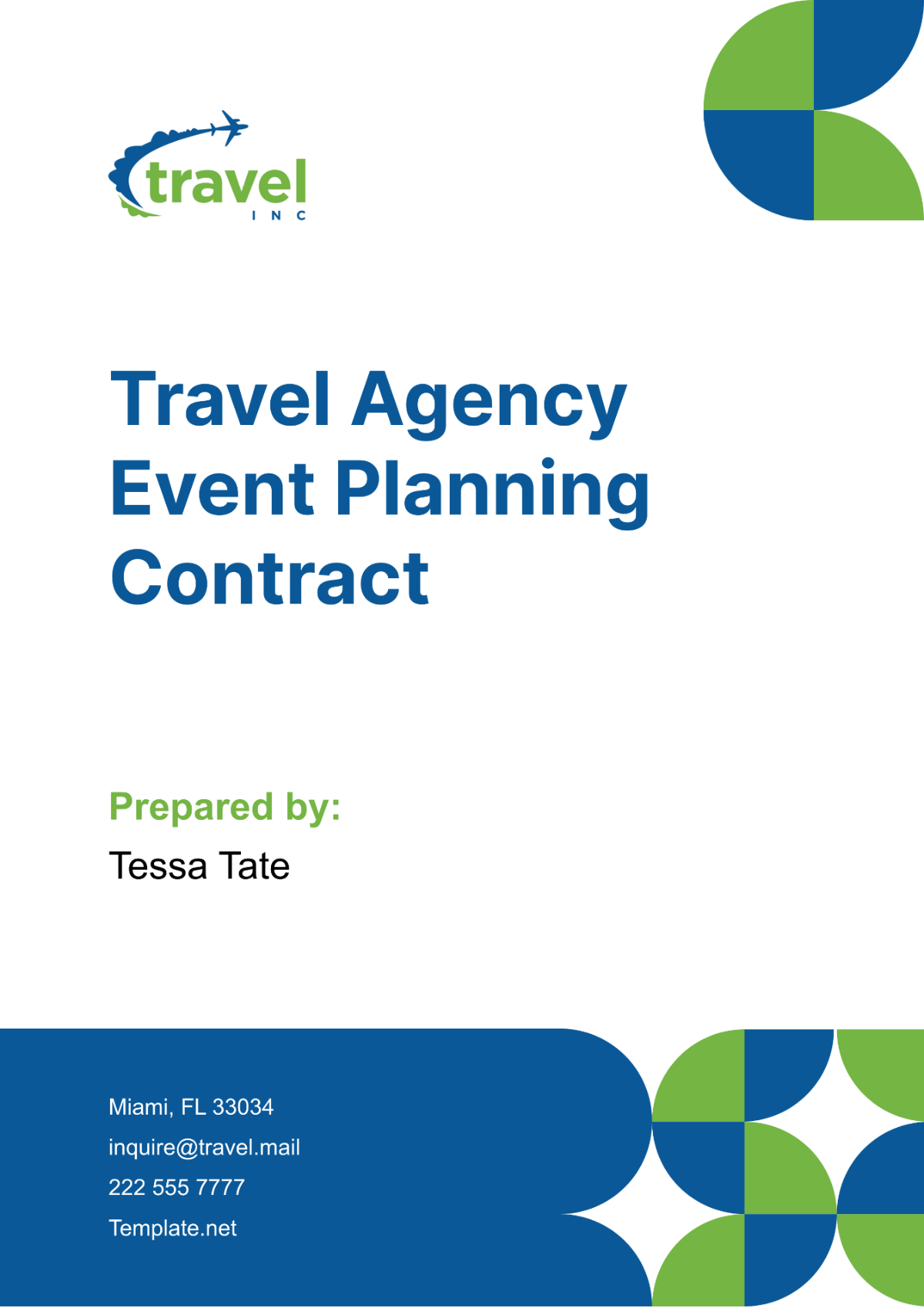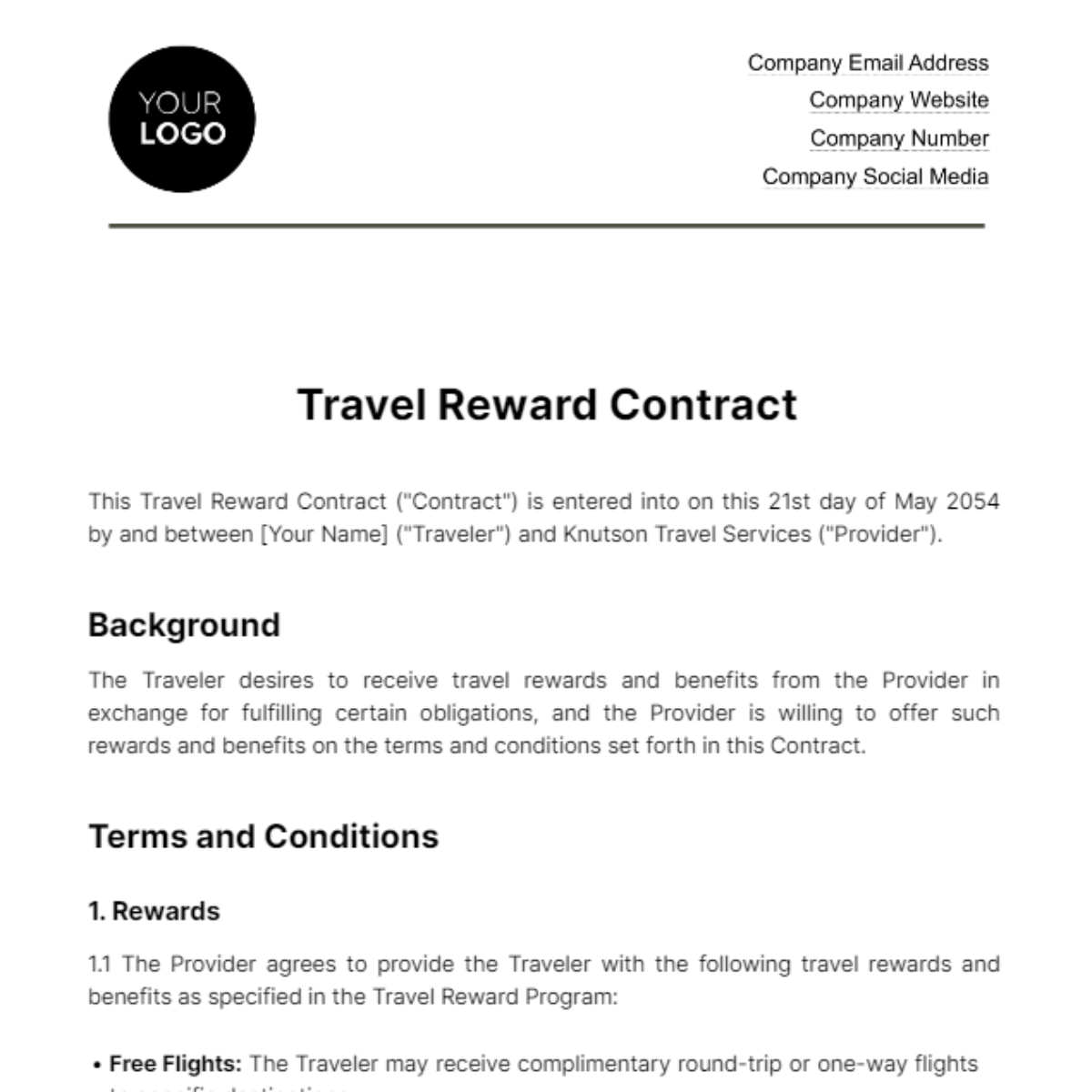Travel Agency Event Planning Contract
I. The Parties
This Travel Agency Event Planning Contract (“Contract”) is made and entered into on [Month Day, Year] (“Effective Date”) by and between:
A. Agency
Name: The Agency is [Your Company Name], a reputable and licensed travel agency specializing in event planning.
Address: The Agency’s primary place of business is located at [Your Company Address].
Role: The Agency is responsible for providing comprehensive event planning services, including but not limited to venue selection, transportation, accommodation, and itinerary planning.
and
B. Client
Name: The Client is [Client’s Name], an individual or entity seeking professional event planning services.
Address: The Client’s place of business or residence is [Client’s Address].
Role: The Client is engaging the Agency’s services for the purpose of planning and executing an event.
Collectively referred to as the “Parties”.
WHEREAS, the Agency possesses expertise in planning and managing events, and has the necessary resources and capabilities to provide these services;
WHEREAS, the Client desires to engage the Agency’s services for the purpose of planning and executing an event, and is willing to abide by the terms and conditions set forth in this Agreement;
WHEREAS, the Agency agrees to provide its event planning services to the Client in accordance with the terms and conditions of this Agreement;
NOW, THEREFORE, in consideration of the mutual covenants contained herein and for other good and valuable consideration, the receipt and sufficiency of which is hereby acknowledged, the Parties agree as follows:
II. Scope of Services
The Agency shall provide comprehensive travel and event planning services. The services include, but are not limited to:
A. Event Concept Development
Brainstorming and Ideation: The Agency will work closely with the Client to brainstorm and develop an event concept that aligns with the Client’s vision and objectives. This collaborative process will involve discussing the Client’s goals for the event, exploring various theme ideas, and considering different event formats and structures.
Event Planning and Design: Once the event concept has been agreed upon, the Agency will create a detailed event plan that outlines the event concept, timeline, budget, and key deliverables. The Agency will also design the event’s visual elements, such as the color scheme, decor, and branding, to reflect the event concept.
B. Venue Selection
Venue Research: The Agency will conduct extensive research to identify potential venues that align with the event concept and meet the Client’s requirements in terms of size, location, facilities, and budget.
Site Visits and Evaluation: The Agency will visit potential venues to assess their suitability. This will involve evaluating the venue’s facilities, assessing its ambiance, and considering practical factors such as accessibility, capacity, and availability.
Venue Booking and Contract Negotiation: Once a venue is selected, the Agency will handle the booking process, including negotiating the contract with the venue, arranging for any necessary deposits or payments, and coordinating with the venue’s staff to plan the event logistics.
C. Transportation Services
Transportation Planning: The Agency will plan all necessary transportation for the event. This could include arranging for airport transfers for out-of-town guests, organizing shuttle services between the event venue and accommodations, and coordinating any other transportation needs related to the event.
Coordination with Transportation Providers: The Agency will coordinate with transportation providers to ensure timely and efficient services. This will involve scheduling pick-up and drop-off times, planning routes, and handling any changes or issues that arise.
D. Accommodation Arrangements
Accommodation Booking: If overnight accommodations are required for the event, the Agency will handle the booking process. This will involve researching suitable accommodations, negotiating rates, and making reservations.
Coordination with Accommodation Providers: The Agency will coordinate with the accommodation providers to ensure that all of the Client’s needs are met. This could include arranging for special room configurations, coordinating check-in and check-out times, and handling any special requests.
E. Catering Coordination
Menu Planning: The Agency will work with the Client and the caterer to plan a menu that suits the event and the attendees’ dietary preferences and restrictions. This will involve discussing various menu options, conducting food tastings, and finalizing the menu.
Coordination with Caterer: The Agency will coordinate with the caterer to ensure smooth service during the event. This will involve confirming the menu and service details, coordinating the meal schedule, and handling any changes or issues that arise.
F. Full Event Execution Support
On-Site Management: The Agency will provide on-site management on the day of the event to ensure that everything runs smoothly. This includes overseeing the set-up and breakdown of the event, managing the event schedule, and coordinating with vendors and event staff.
Troubleshooting: The Agency will handle any issues or problems that arise during the event. This includes dealing with any vendor issues, managing any unexpected changes, and resolving any problems that may impact the success of the event.
Post-Event Evaluation: After the event, the Agency will conduct an evaluation to assess the success of the event and identify areas for improvement. This will involve gathering feedback from the Client and attendees, reviewing the event’s performance against its objectives, and making recommendations for future events.
III. Term of Agreement
A. Commencement of Contract
Start Date: The Contract will commence on [Month Day, Year]. This is the date from which the Agency will begin providing the Services.
Event Planning Timeline: The Agency will develop a detailed timeline for the event planning process. This timeline will outline all the key tasks and milestones leading up to the event.
B. Termination of Contract
End Date: The Contract will terminate on [Month Day, Year], unless extended by mutual written consent of both parties. This is the date by which all Services under the Contract should be completed.
Early Termination: Either Party may terminate this Contract earlier than the End Date under certain conditions, as outlined in the Contract’s termination clause.
IV. Compensation and Payment Terms
The Client agrees to compensate the Agency for the Services provided under this Contract as follows:
A. Initial Deposit
Deposit Requirement: Upon execution of this Contract, the Client is required to make a non-refundable initial deposit of [$5,000]. This deposit secures the Agency’s services and covers initial planning costs.
Use of Deposit: The initial deposit will be used to cover the Agency’s initial costs associated with the planning and coordination of the event. This may include costs such as research, site visits, and securing of preliminary bookings.
B. Payment Schedule
Installment Payments: The balance of the agreed fee shall be payable in installments due on the [15th] of each month. These dates will be clearly outlined in the payment schedule attached to this Contract.
Payment Amounts: Each installment amount will be calculated based on the total cost of the Services, less the initial deposit, divided by the number of installments. This ensures a fair and manageable payment plan for the Client.
Late Payment Consequences: If any installment payment is not received by the Agency by the due date, a late fee of [10]% of the installment amount may be applied. The amount of the late fee will be specified in the Contract.
V. Responsibilities of the Client
The Client shall:
A. Provide Information
Necessary Information: The Client shall provide all necessary information and documentation needed for the Agency to perform the Services in a timely manner. This includes, but is not limited to, details about the event, the budget, and any specific requirements or preferences.
Accuracy of Information: The Client is responsible for ensuring that all information provided to the Agency is accurate and up-to-date. Any changes or updates to the information should be communicated to the Agency as soon as possible.
Confidentiality of Information: The Client is responsible for identifying any information that is confidential or sensitive. The Agency will treat such information in accordance with the confidentiality provisions of this Contract.
B. Point of Contact
Designation of Contact Person: The Client shall designate a point of contact for direct communication with the Agency throughout the term of this Contract. This person will be responsible for making decisions on behalf of the Client and providing timely responses to the Agency’s inquiries.
Availability of Contact Person: The designated contact person should be available during normal business hours and should be able to respond to the Agency’s inquiries within a reasonable time frame.
Authority of Contact Person: The designated contact person should have the authority to make decisions on behalf of the Client, including decisions related to the event concept, budget, venue selection, and other key aspects of the event.
C. Review and Approval
Review of Plans and Concepts: The Client shall review and approve concepts and plans submitted by the Agency within the timeframes agreed upon. This ensures that the event planning process can proceed according to the timeline.
Feedback and Suggestions: The Client should provide constructive feedback and suggestions to the Agency to help improve the event plans and concepts.
Final Approval: The Client is responsible for giving final approval to the event plan, budget, and other key deliverables. Once these items are approved, the Agency will proceed with the execution of the event.
VI. Amendments and Cancellation
Any amendments to this Contract must be made in writing and signed by both parties. In the event of cancellation:
A. Amendments
Written Amendments: Any changes or amendments to this Contract must be made in writing and signed by both parties. This ensures that both parties agree to the changes and that the changes are legally enforceable.
Effect of Amendments: Any amendments to this Contract will become part of the Contract and will be subject to all the terms and conditions of the Contract, unless otherwise specified in the amendment.
Notification of Amendments: The party proposing the amendment must provide the other party with at least [30] days’ notice of the proposed amendment. This allows the other party to review and consider the amendment before it is implemented.
B. Cancellation
Cancellation More Than [60] Days Prior: If the Client cancels the event more than [60] days prior to the event date, any payments made may be refundable except for the initial deposit. This is due to the work already performed by the Agency and the costs incurred.
Cancellation Within [60] Days: If cancellation occurs within [60] days of the event date, the Client will be liable for [50%] of the total contracted fee. This is due to the significant work that would have already been completed by the Agency and the costs that would have already been incurred.
VII. Indemnification
The Client agrees to indemnify and hold the Agency harmless from any claims, losses, damages, or liabilities incurred due to the Client’s negligence or willful misconduct.
A. Definition of Indemnification
Indemnification: Indemnification is a legal term that refers to the act of compensating someone for a loss or damage they have suffered. In the context of this Contract, the Client agrees to compensate the Agency for any losses or damages it suffers as a result of the Client’s actions.
Scope: The indemnification clause covers any claims, losses, damages, or liabilities incurred due to the Client’s negligence or willful misconduct. This includes, but is not limited to, breaches of contract, violations of law, and any damages caused to third parties.
Exclusions: The indemnification clause does not cover any claims, losses, damages, or liabilities that result from the Agency’s own negligence or misconduct.
B. Process of Indemnification
Notice of Claim: If the Agency becomes aware of a claim, loss, damage, or liability that is covered by the indemnification clause, it will notify the Client in writing. The notice will provide details of the claim and the amount of compensation sought.
Investigation and Defense: The Client will have the opportunity to investigate the claim and, if necessary, defend against it. The Agency will cooperate with the Client in the investigation and defense.
Payment of Compensation: If the claim is upheld, the Client will be responsible for paying the compensation to the Agency. The amount of compensation will be equal to the amount of the claim, plus any legal costs incurred by the Agency.
C. Limitations on Indemnification
Maximum Liability: The Client’s maximum liability under the indemnification clause will be limited to the amount of fees paid by the Client to the Agency under this Contract. This ensures that the Client’s liability is proportionate to the size of the Contract.
Time Limit: The Client will not be liable for any claims, losses, damages, or liabilities that are brought more than [3] years after the termination of this Contract. This ensures that the Client’s liability does not continue indefinitely.
VIII. Confidentiality
Both parties agree to maintain the confidentiality of any proprietary information received during the term of this Contract. This obligation shall survive the termination of this Contract.
A. Definition of Confidential Information
Confidential Information: Confidential information refers to any non-public information that is exchanged between the parties during the term of this Contract. This includes, but is not limited to:
1.1. Financial Information: This could involve details about the financial status of either party, such as revenue, profits, financial forecasts, investment strategies, or other financial data.
1.2. Business Plans: This could include strategic plans, marketing strategies, expansion plans, research and development plans, or other proprietary business strategies.
1.3. Customer Lists: This could include lists of current or potential customers, including their contact information, purchasing history, preferences, or other proprietary customer data.
1.4. Vendor Lists: This could include lists of suppliers or service providers, along with their contact information, pricing, contract terms, or other proprietary vendor data.
1.5. Pricing Information: This could include pricing strategies, cost structures, rate sheets, discount policies, or other proprietary pricing data.
1.6. Event Plans: This could include detailed plans for the event, including schedules, vendor contracts, guest lists, or other proprietary event planning data.
Exclusions: Confidential information does not include information that:
2.1. Public Knowledge: Is already known to the public. This means that if the information is publicly available, such as through a public database or news article, it is not considered confidential.
2.2. Independent Development: Is independently developed by the receiving party. This means that if the receiving party develops the same or similar information on their own, without using the confidential information provided by the disclosing party, it is not considered confidential.
2.3. Third-Party Disclosure: Is lawfully obtained from a third party. This means that if the receiving party lawfully receives the same or similar information from a third party, without any obligation of confidentiality, it is not considered confidential.
B. Obligations of the Parties
Non-Disclosure: Both parties agree not to disclose any confidential information to any third party without the prior written consent of the other party. This ensures that the confidential information is protected and only used for the purposes of this Contract.
Use of Information: Both parties agree to use the confidential information only for the purposes of this Contract. They will not use the information for their own benefit or the benefit of any third party.
Protection of Information: Both parties agree to take reasonable measures to protect the confidentiality of the information. This includes storing the information in a secure manner and limiting access to the information.
IX. Governing Law
A. Applicable Law
State Law: The laws of the state of [State Name] will govern this Contract. This includes all state statutes, regulations, and case law.
Exclusion of Conflict of Laws: The Contract will be interpreted without regard to the state’s conflict of law rules. This means that even if the laws of another jurisdiction would ordinarily apply, the laws of [State Name] will govern.
Federal Law: If a question arises under federal law, the federal law will apply.
B. Jurisdiction
Court Jurisdiction: Any legal proceedings related to this Contract will be conducted in the state of [State Name].
Consent to Jurisdiction: By entering into this Contract, both parties consent to the jurisdiction of the courts located within the state of [State Name].
C. Venue
Venue: The venue for any legal proceedings will be the county in which the Provider’s principal place of business is located.
Change of Venue: The Provider may change the venue if necessary, but it must be within the state of [State Name].
X. Entire Agreement
A. Completeness of the Contract
Entire Agreement: This Contract represents the entire agreement between the parties. It supersedes all prior negotiations, discussions, or agreements, whether oral or written. This ensures that all terms and conditions are consolidated into this single document.
Exclusion of Other Terms: No other understandings, promises, or agreements, whether oral or written, are valid unless they are included in this Contract or are mutually agreed upon by both Parties in writing.
B. Modifications
Written Modifications: Any modifications to this Contract must be in writing and signed by both parties. This ensures that any changes to the Contract are mutually agreed upon and legally enforceable.
Oral Modifications: Oral modifications are not valid or enforceable. This ensures that all modifications are documented and reduces the risk of misunderstandings or disputes.
C. Interpretation
Fair Interpretation: This Contract will be interpreted fairly and not in favor of or against either party. This ensures that the Contract is interpreted in a balanced and unbiased manner.
Severability: If any provision of this Contract is found to be invalid or unenforceable, the remaining provisions will remain in effect. This ensures that the rest of the Contract remains valid even if one part is found to be invalid.
XI. Signatures
IN WITNESS WHEREOF, the parties hereto have executed this Contract as of the date first above written.
Agency

[Authorized Representative Name]
[Your Company Name]
Date: [Month Day, Year]
Client

[Client's Name]
Date: [Month Day, Year]

